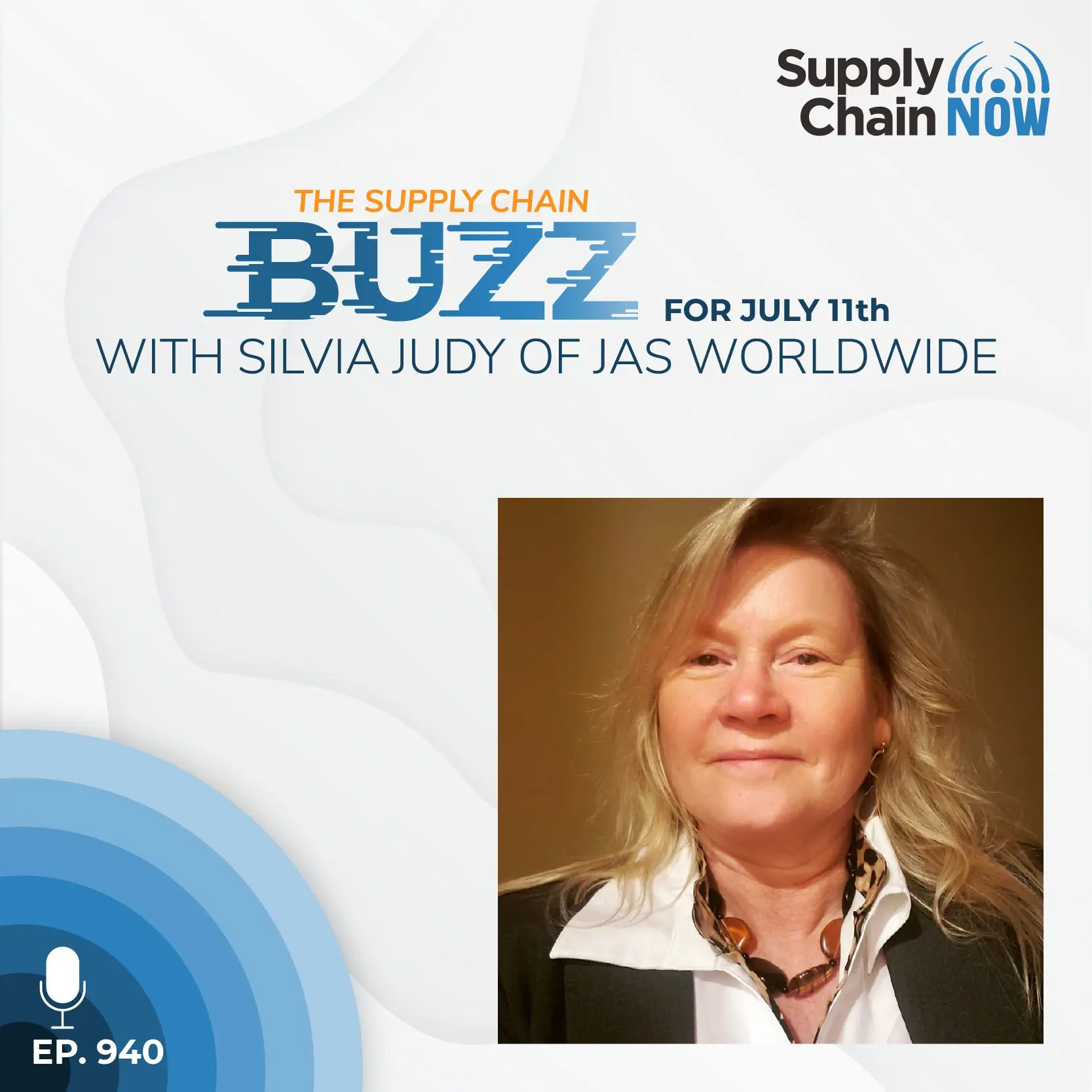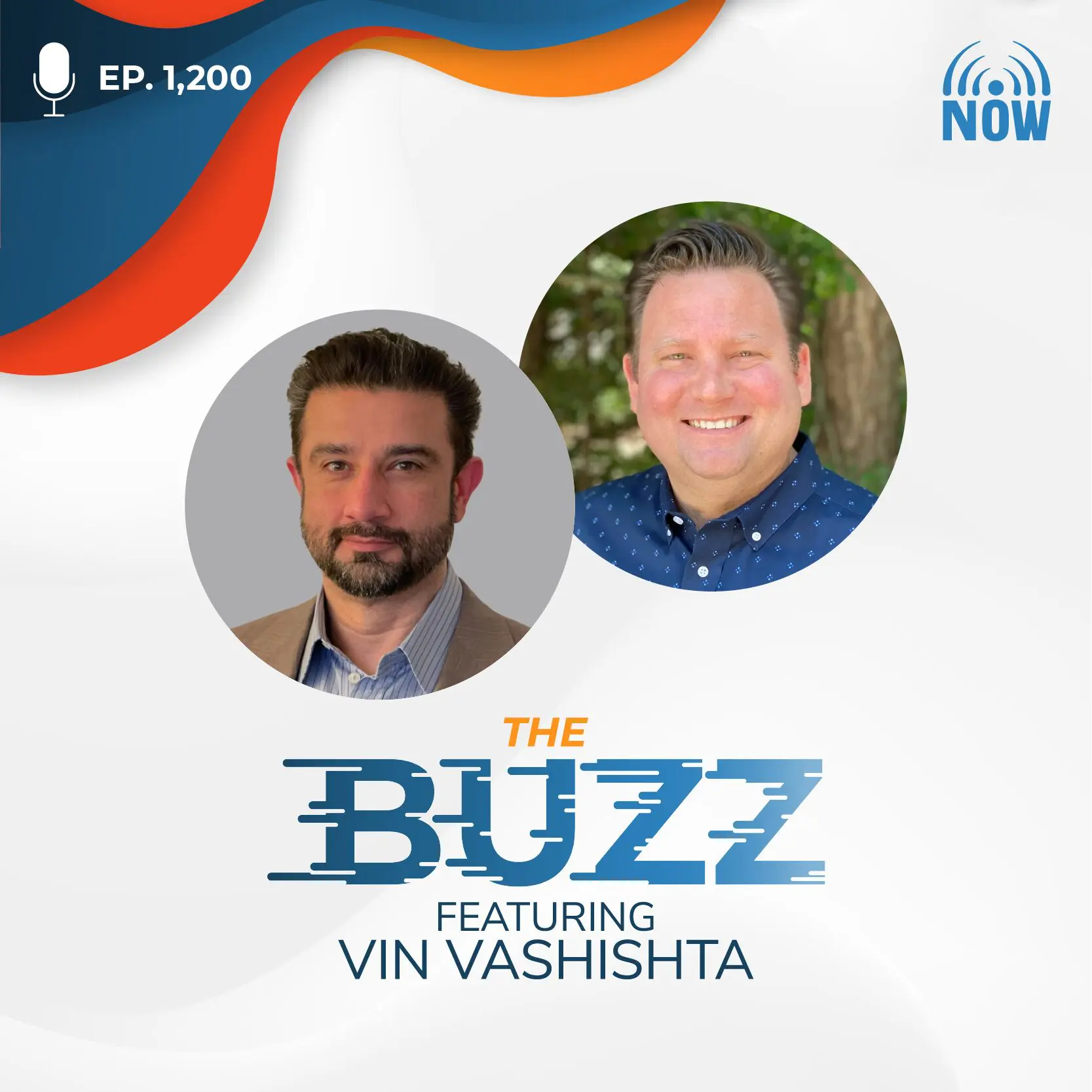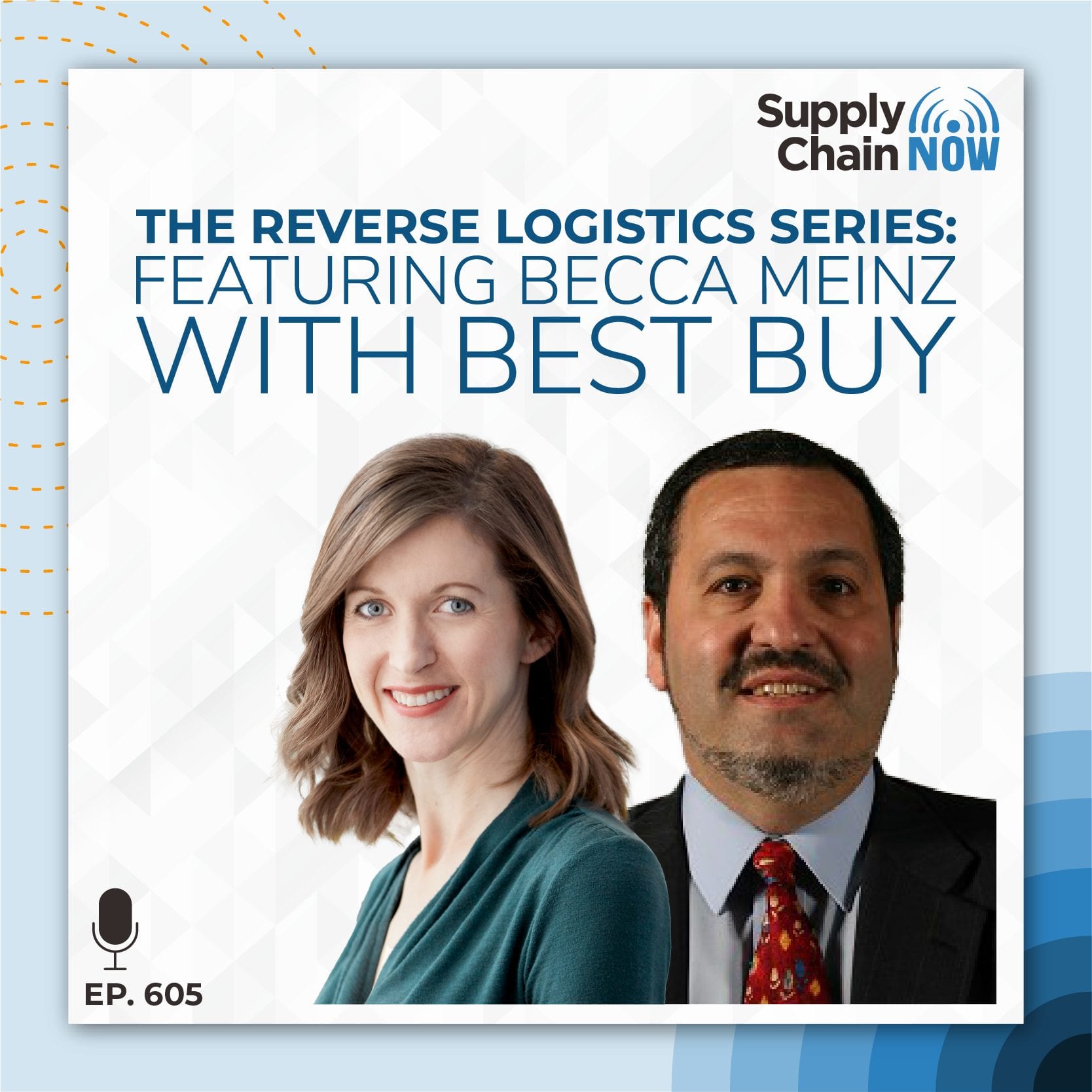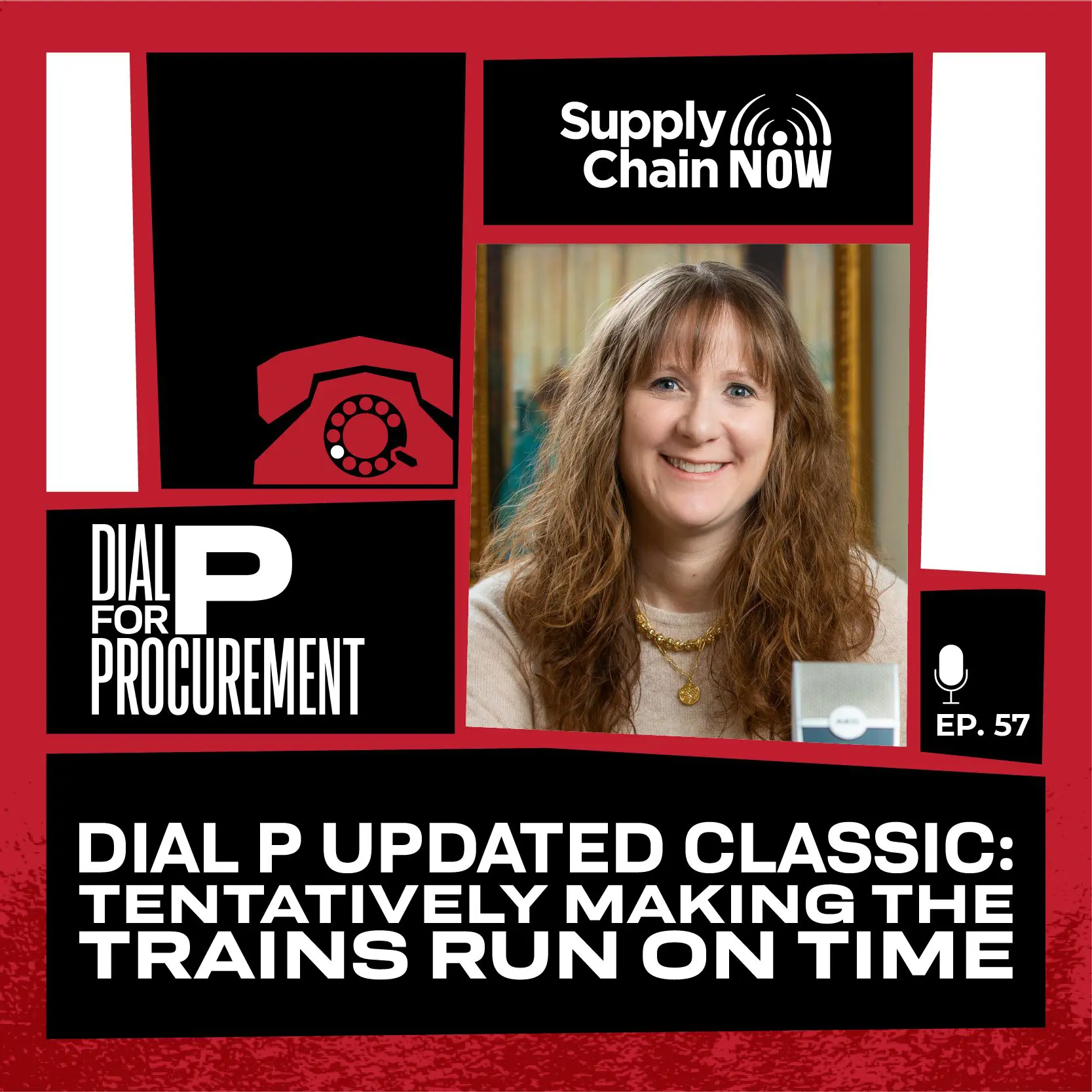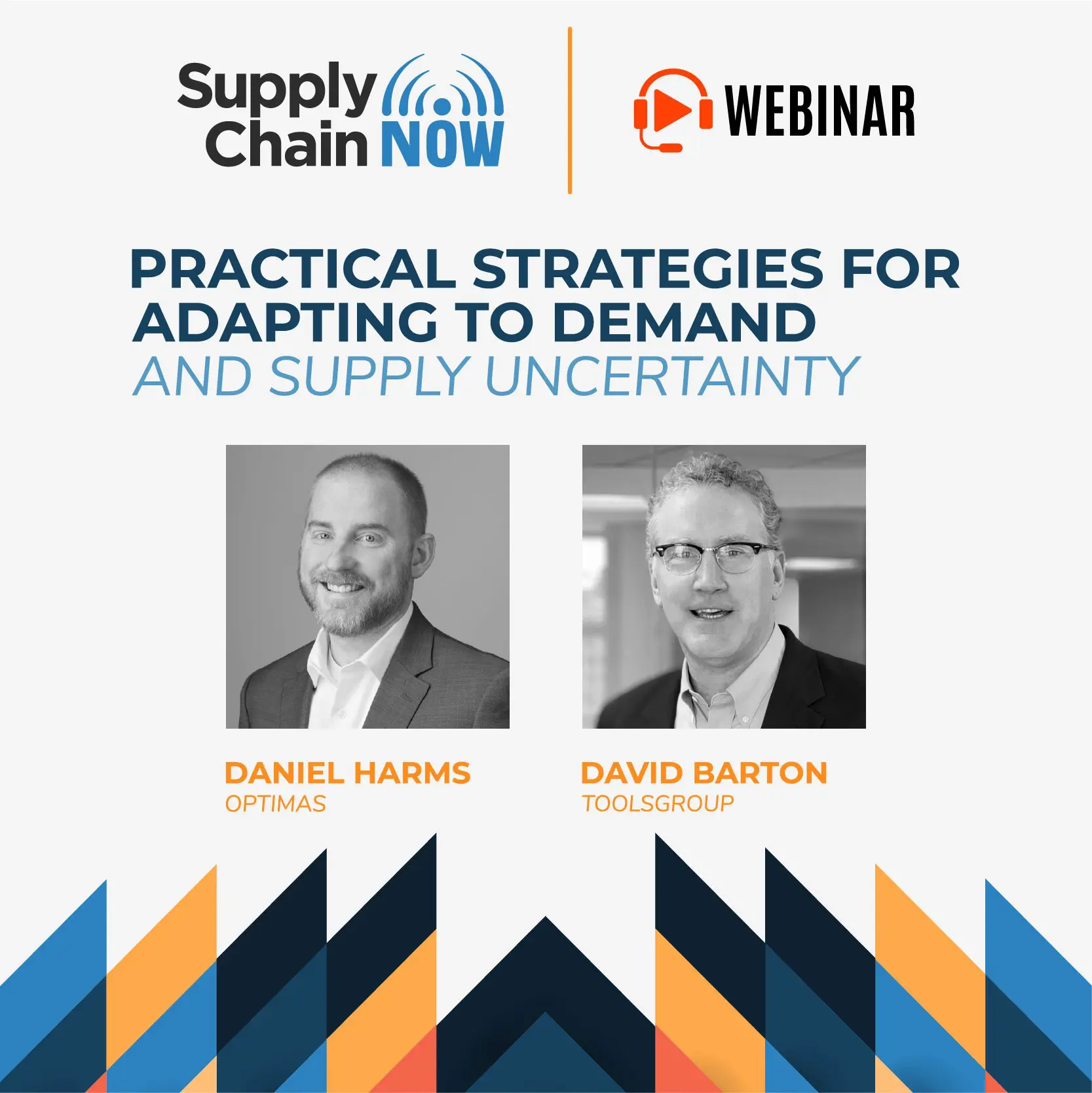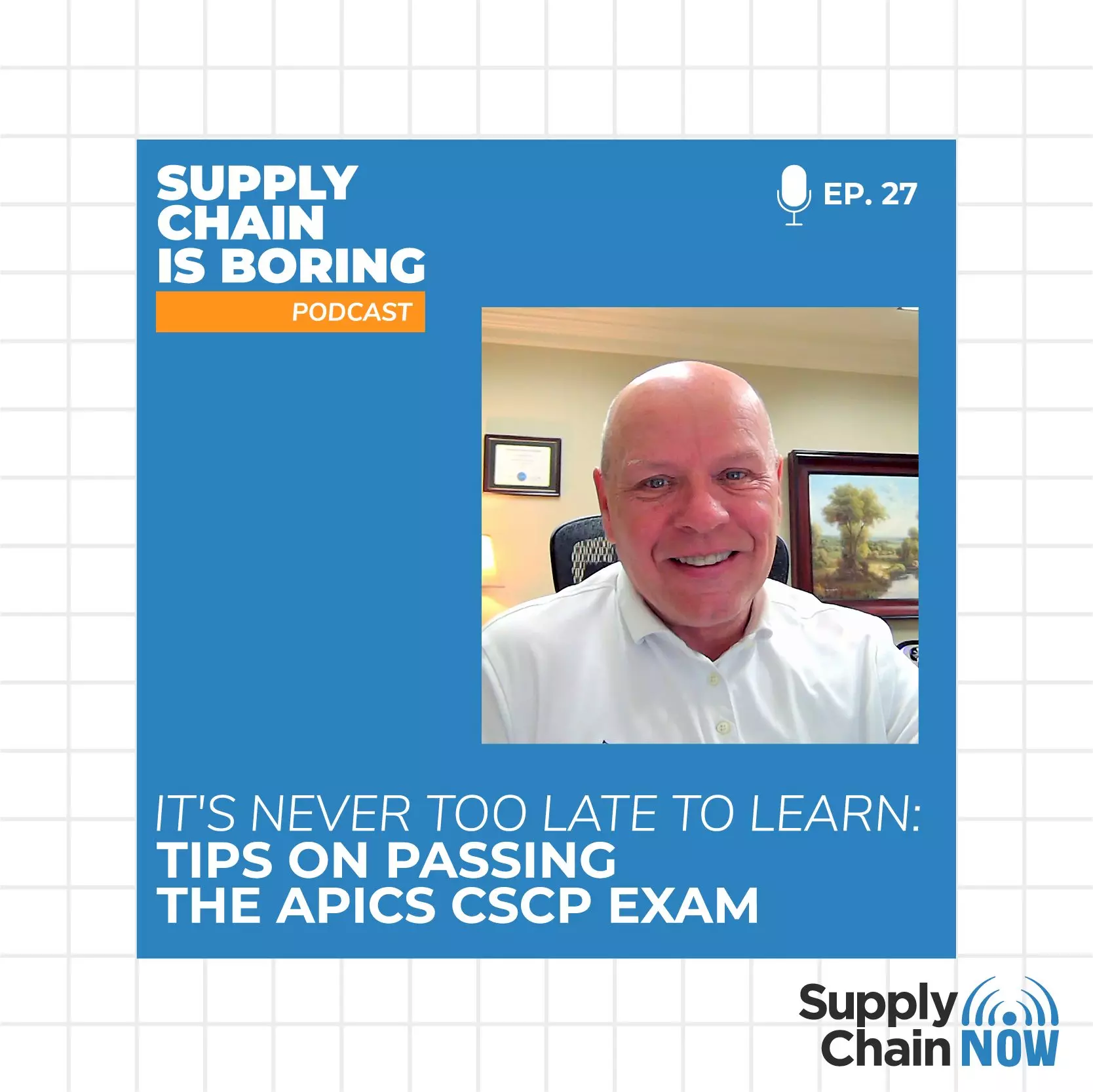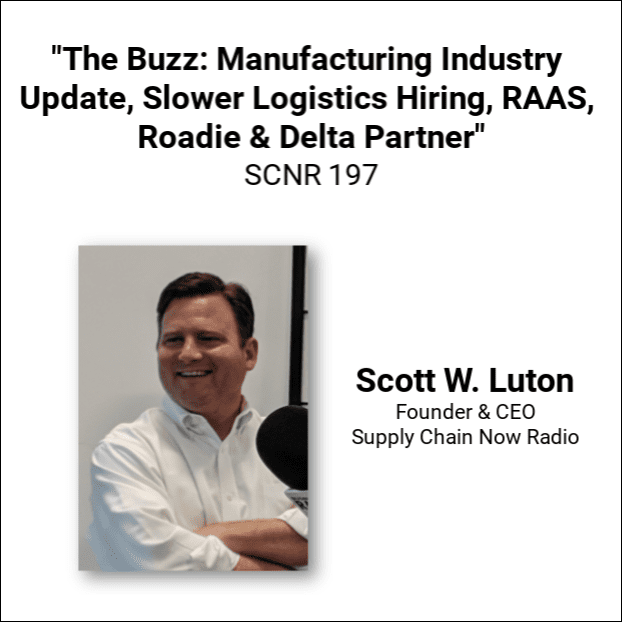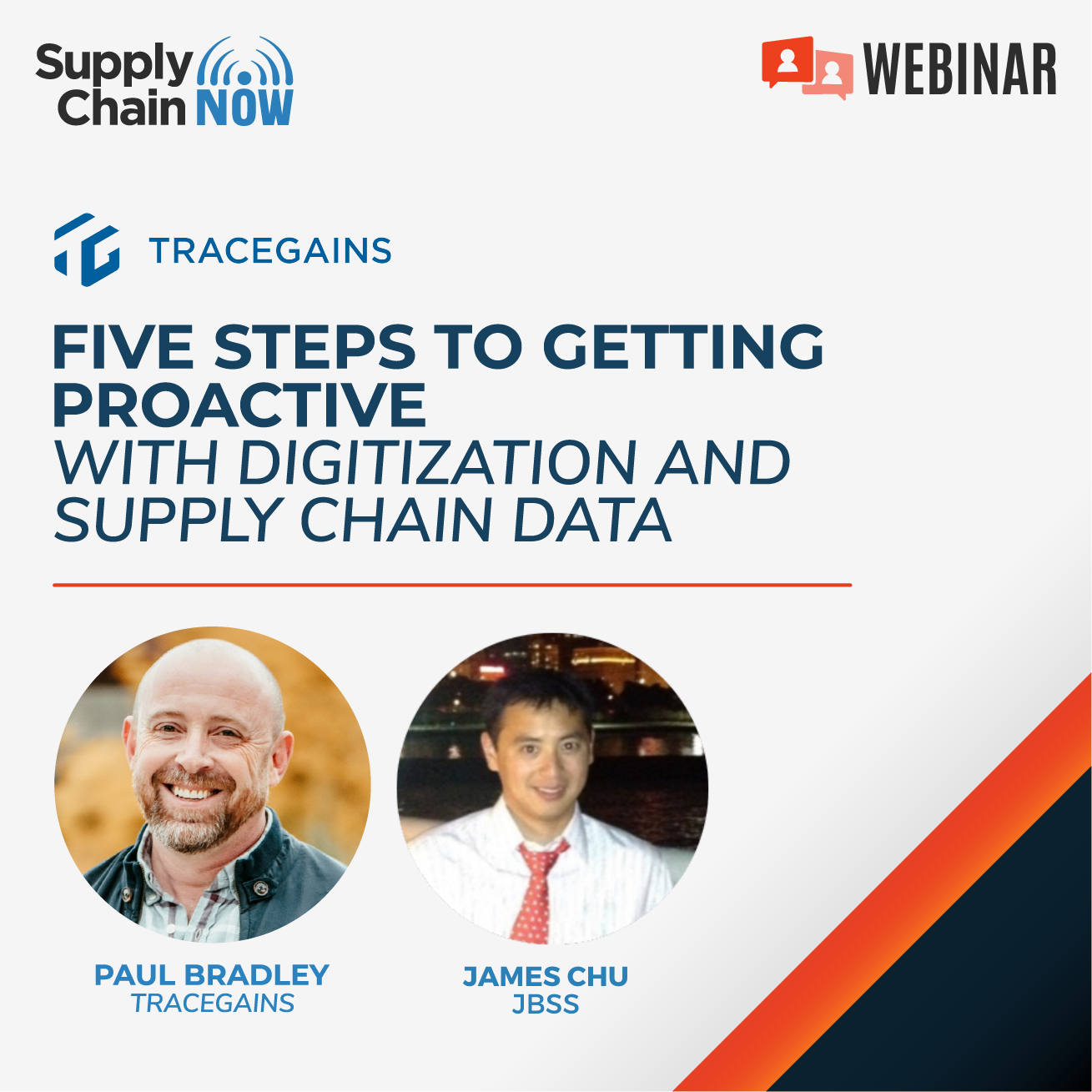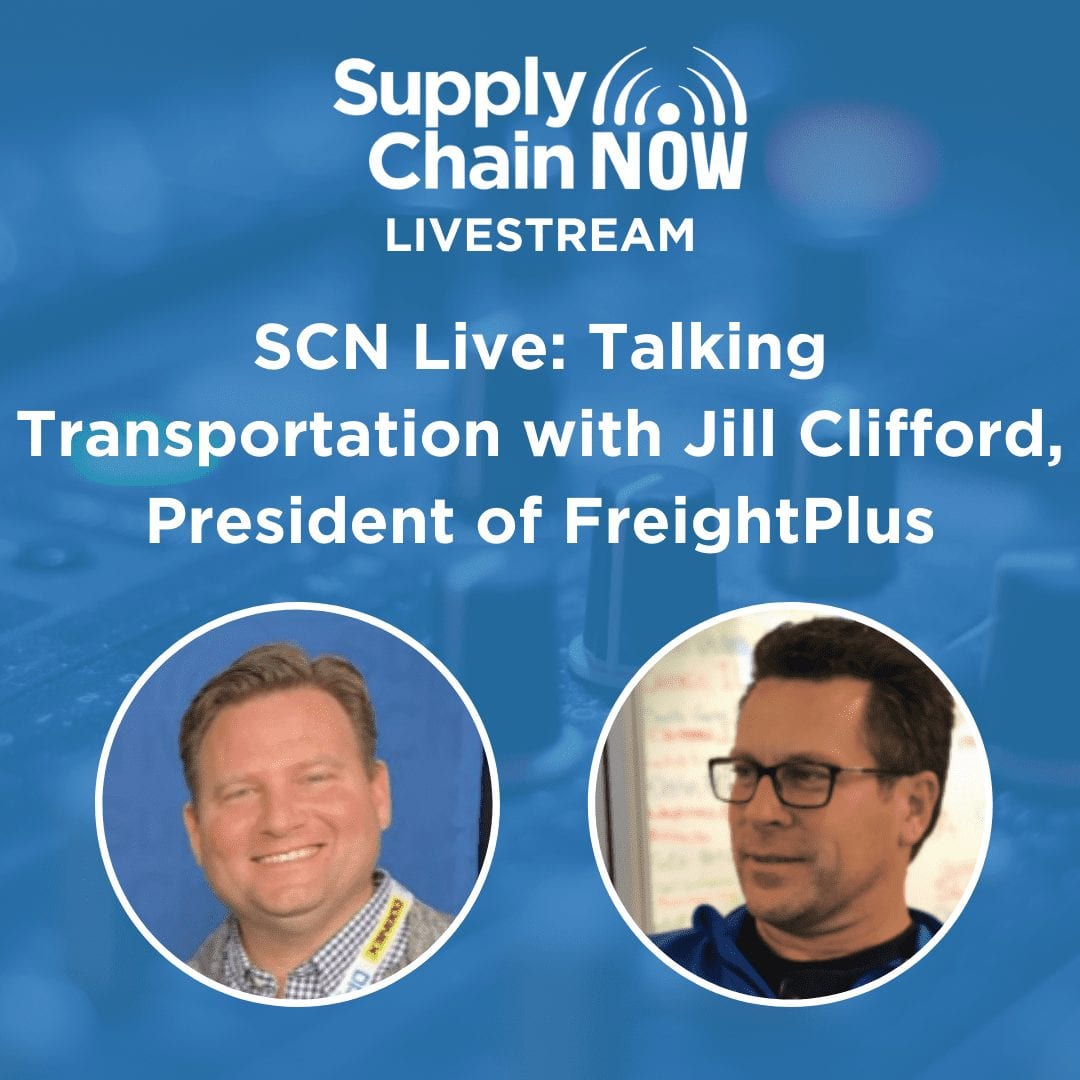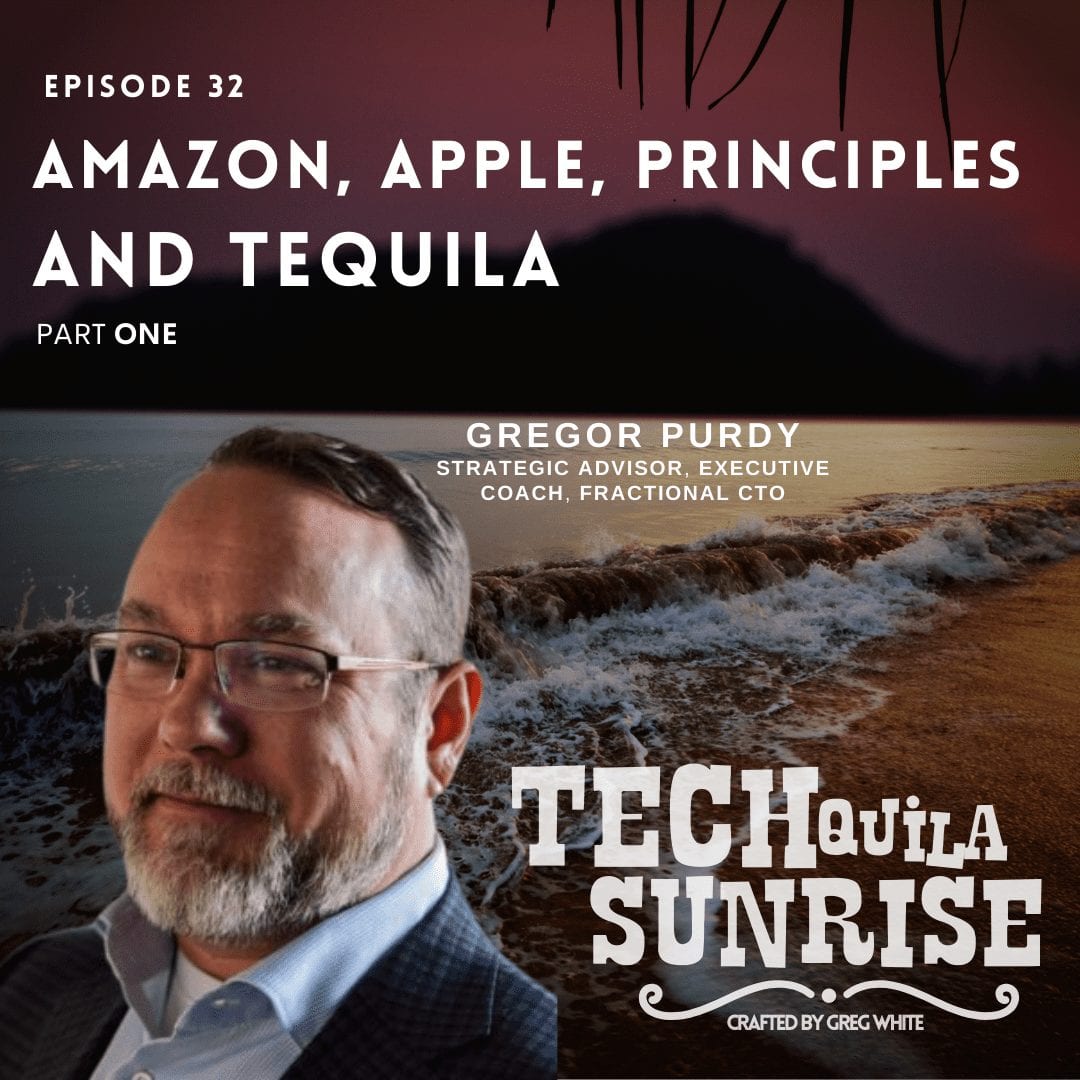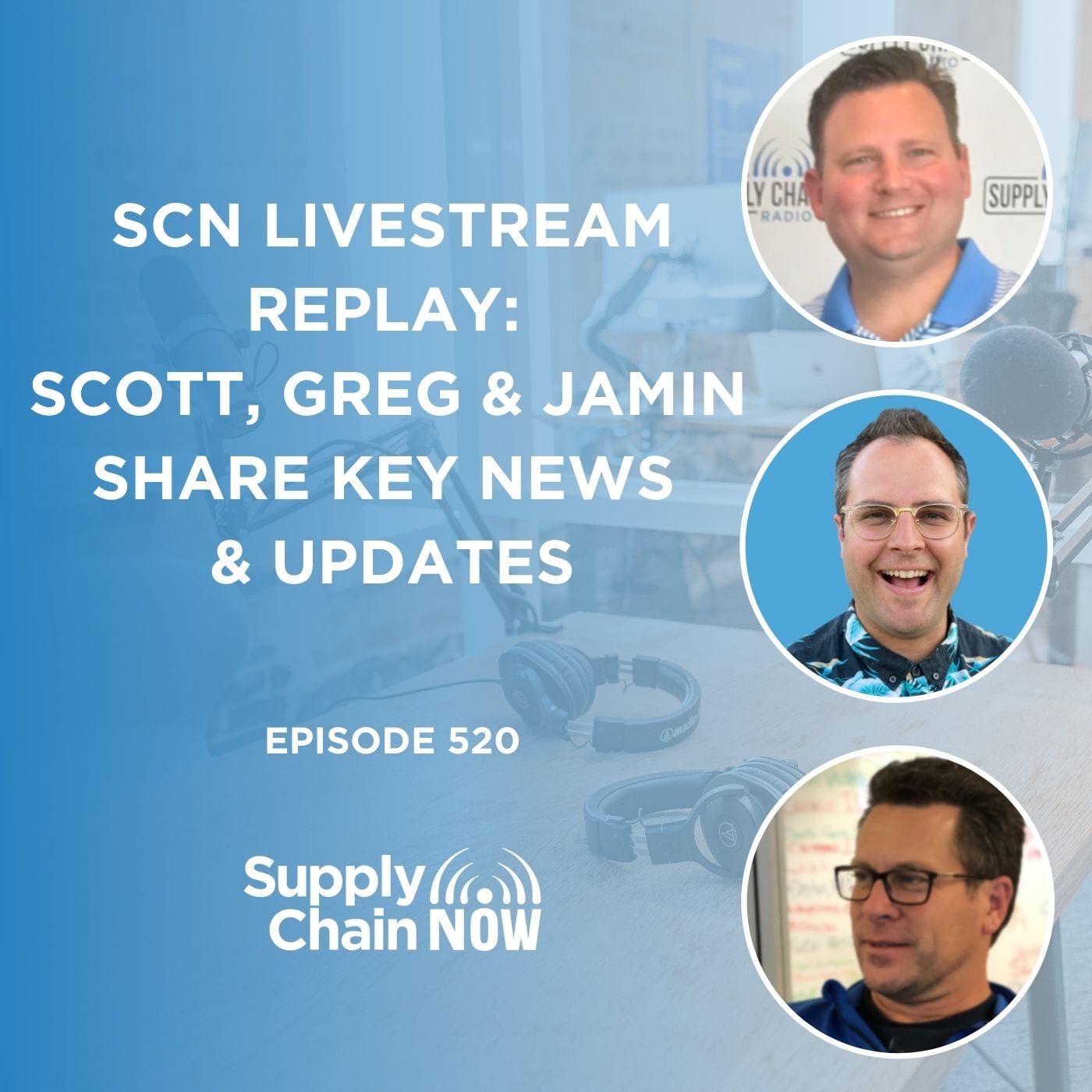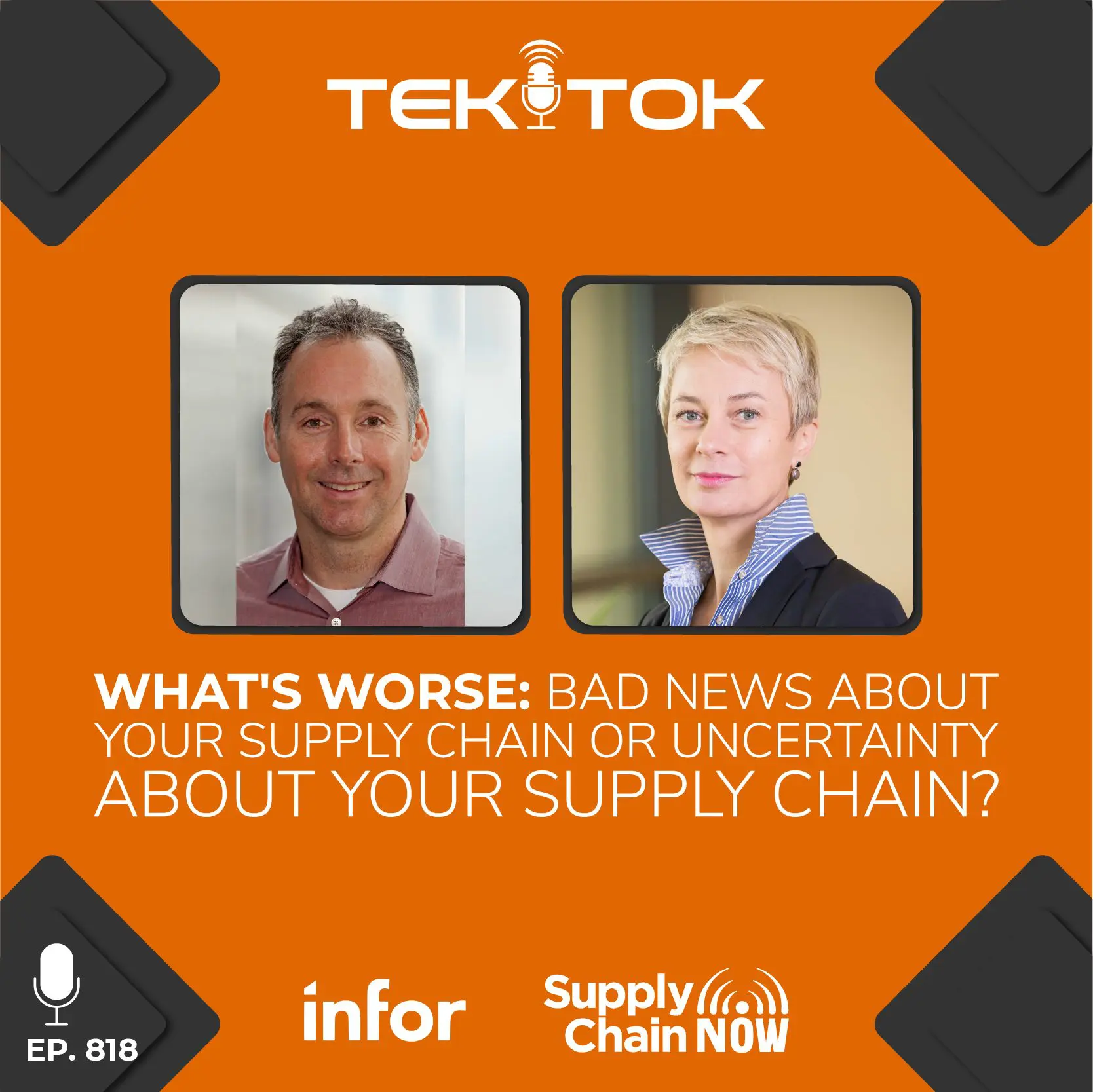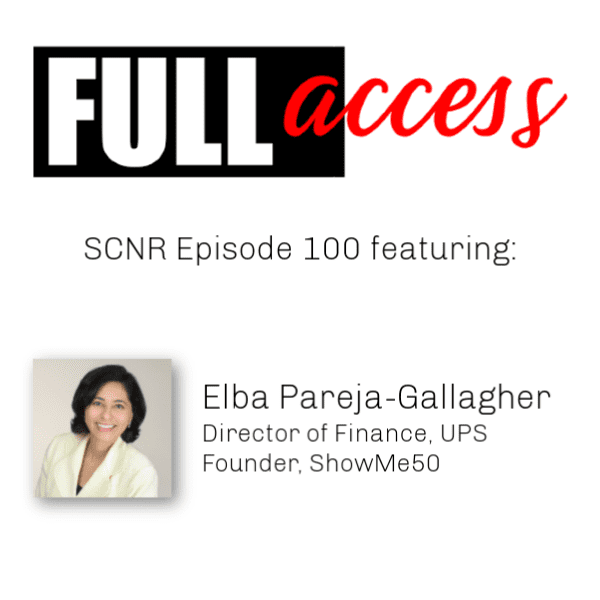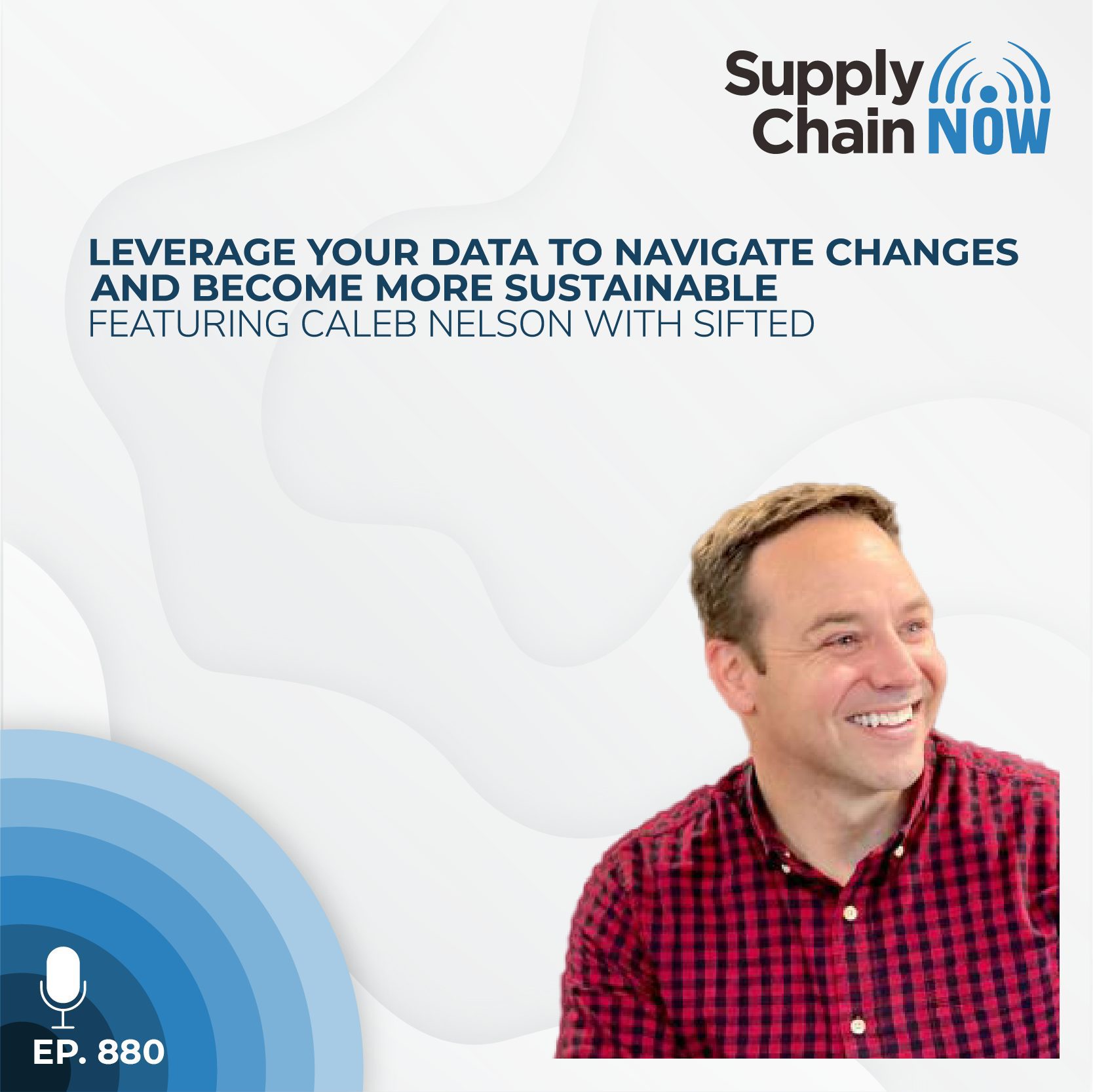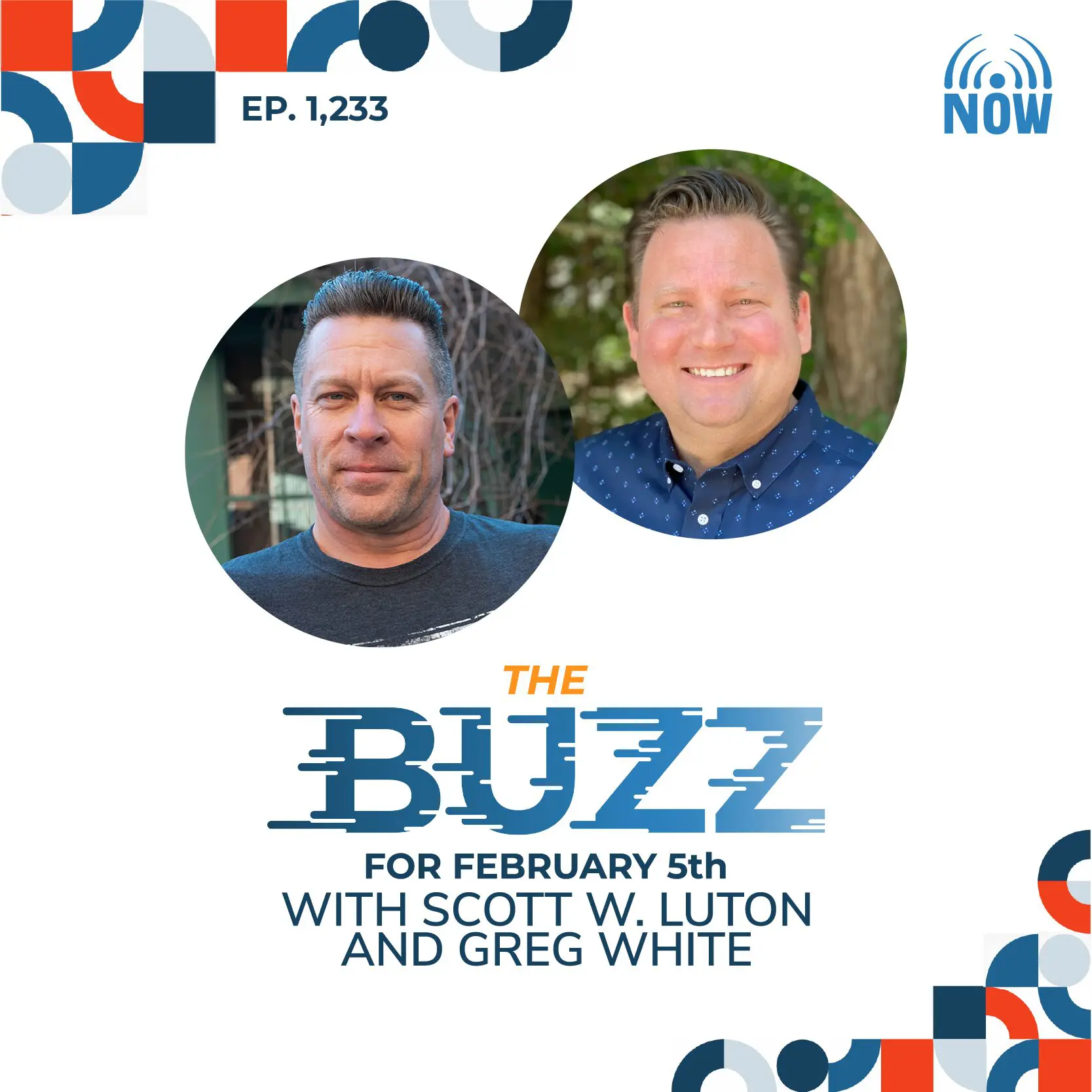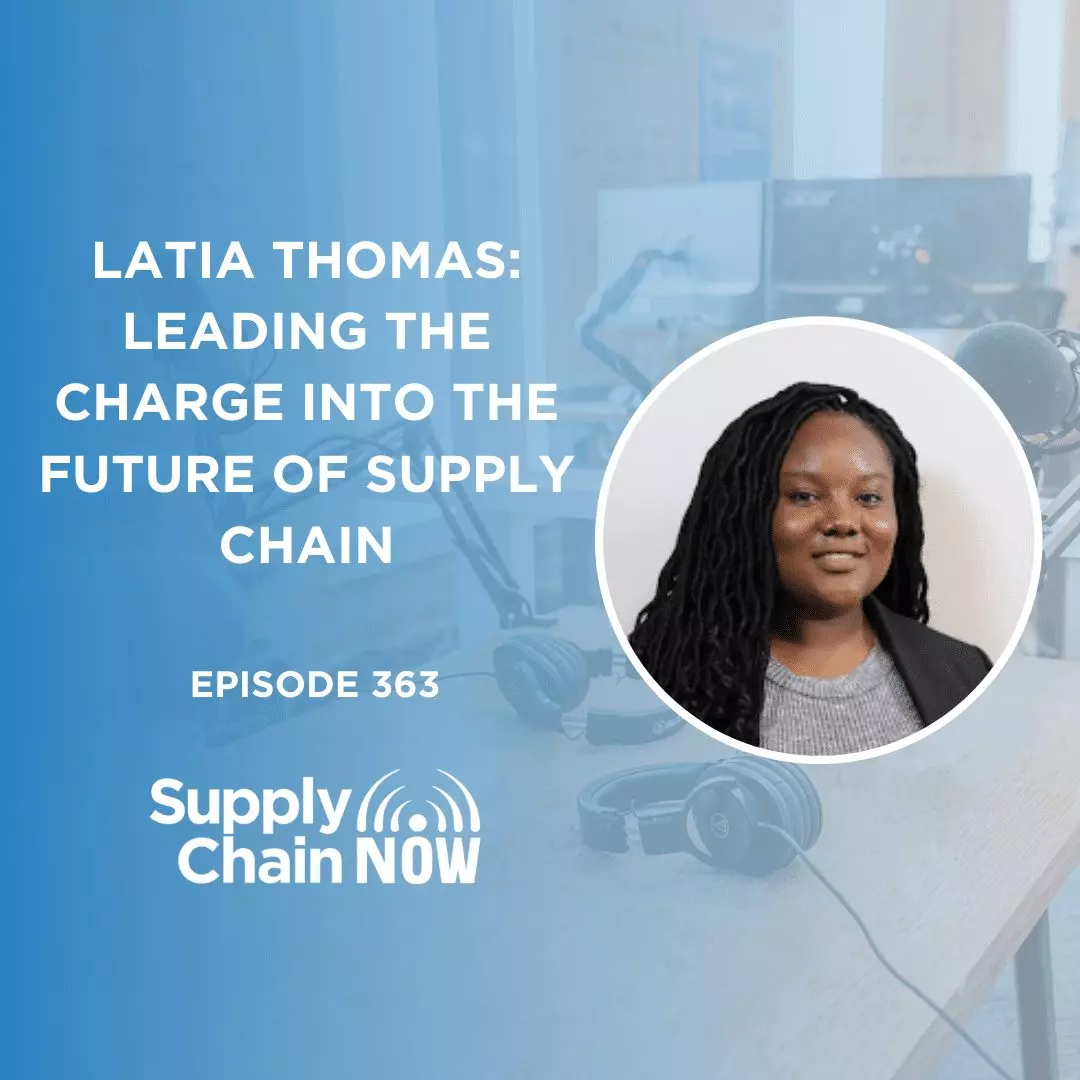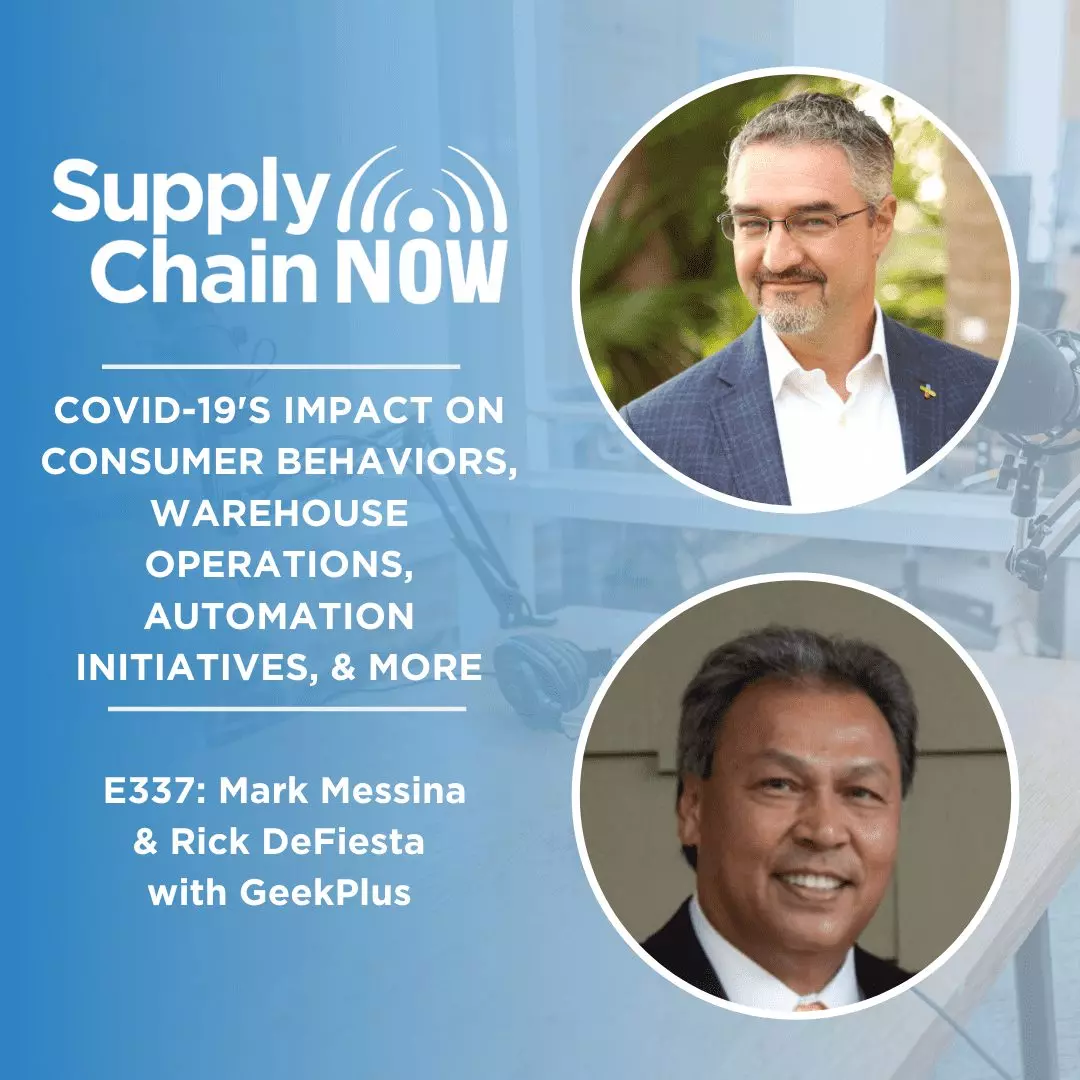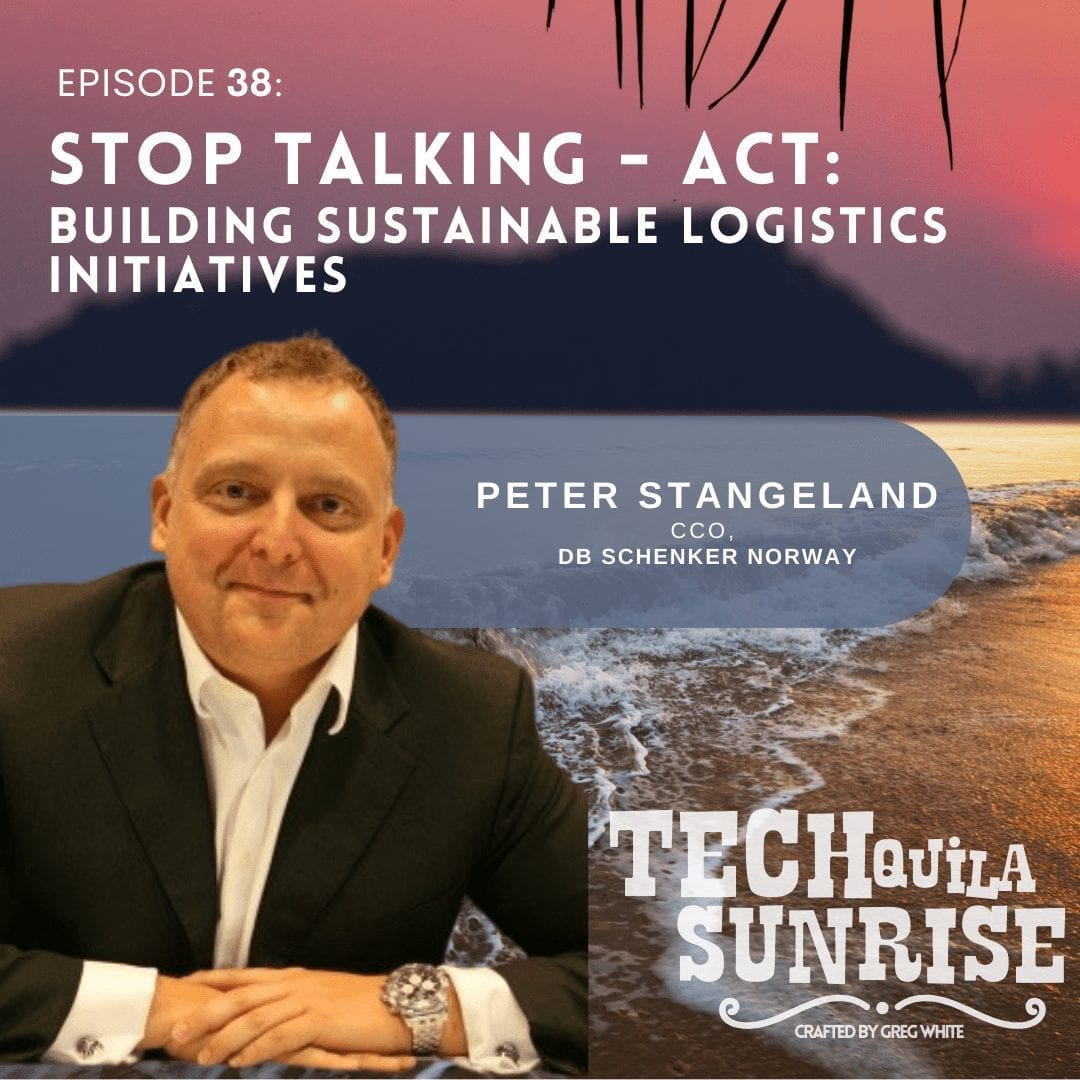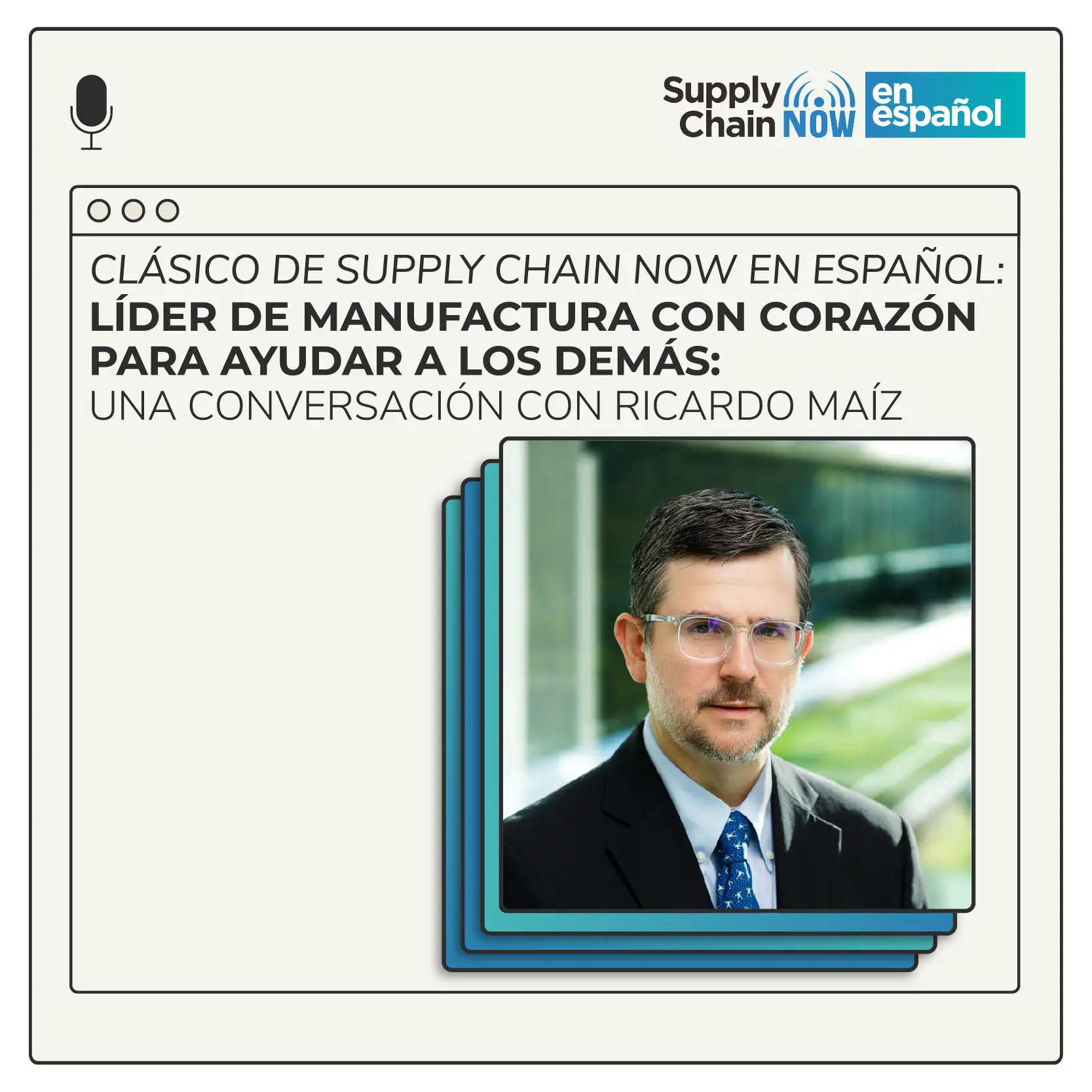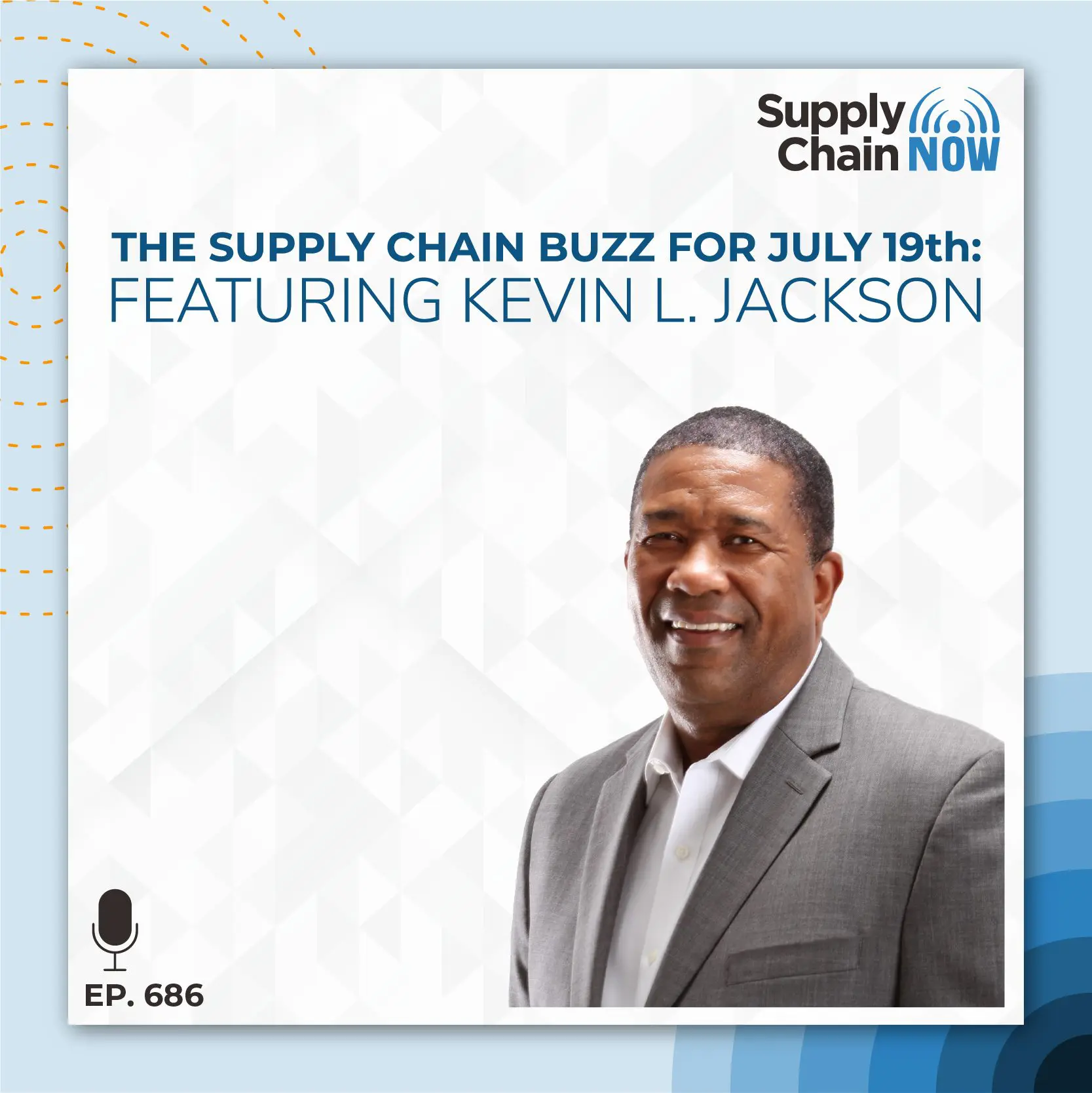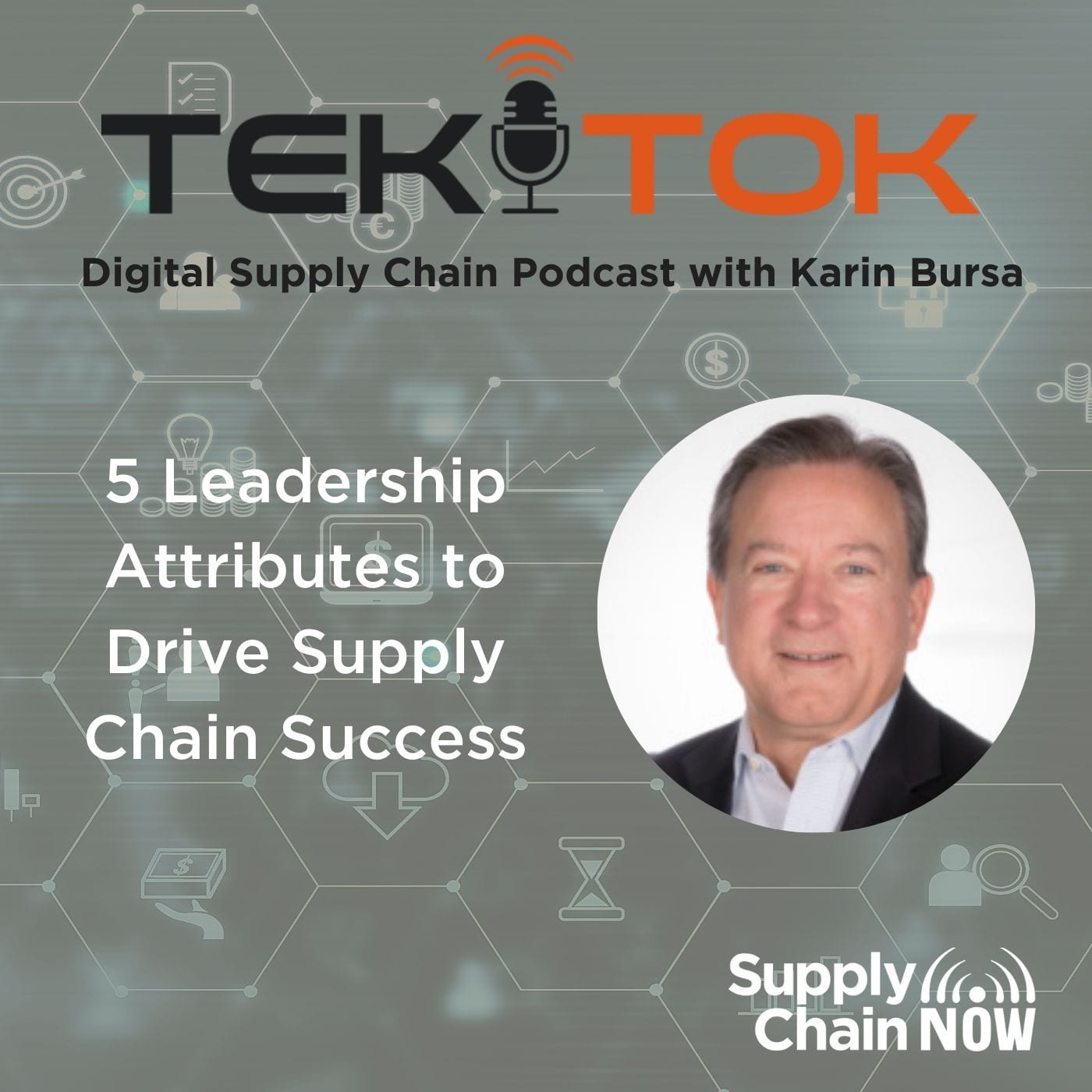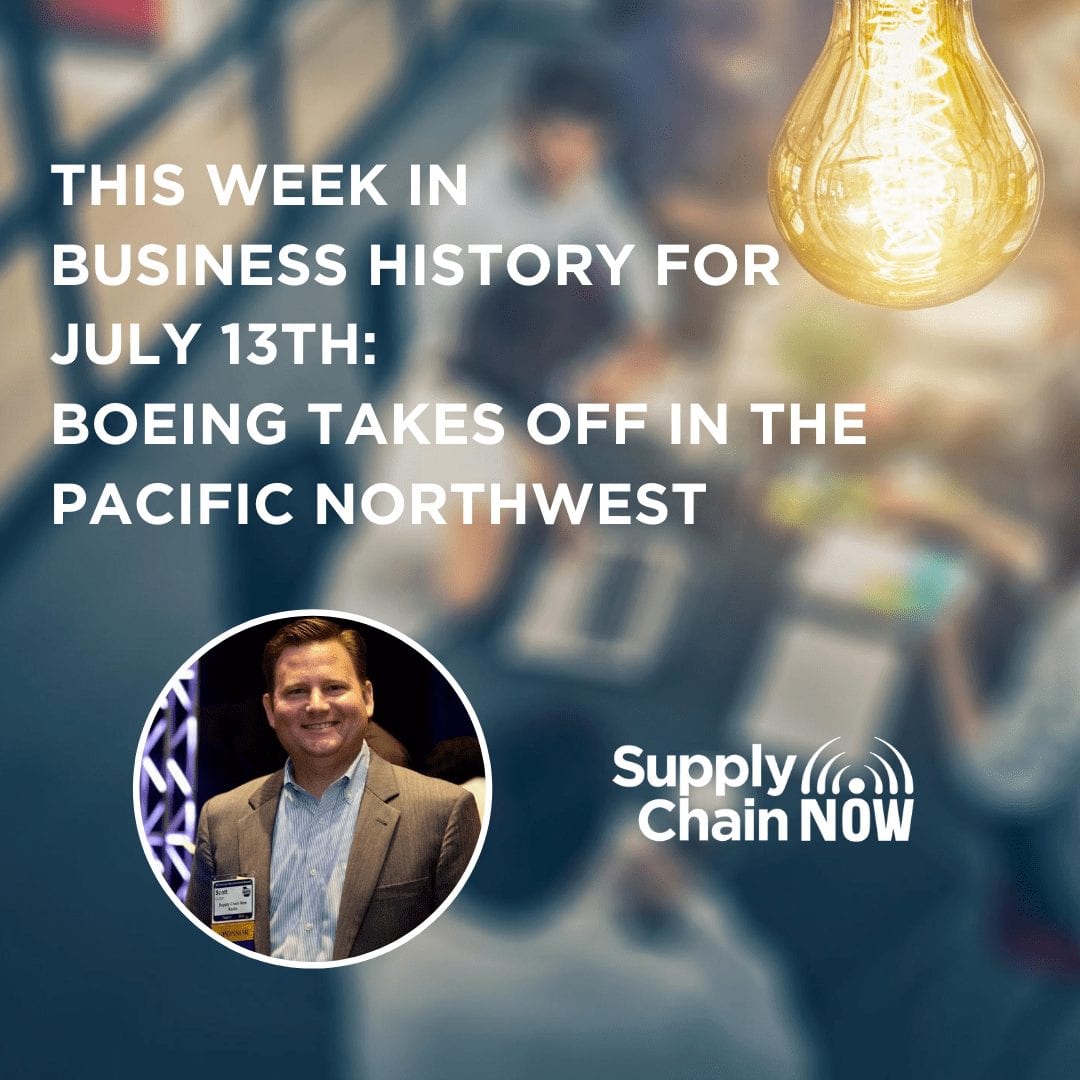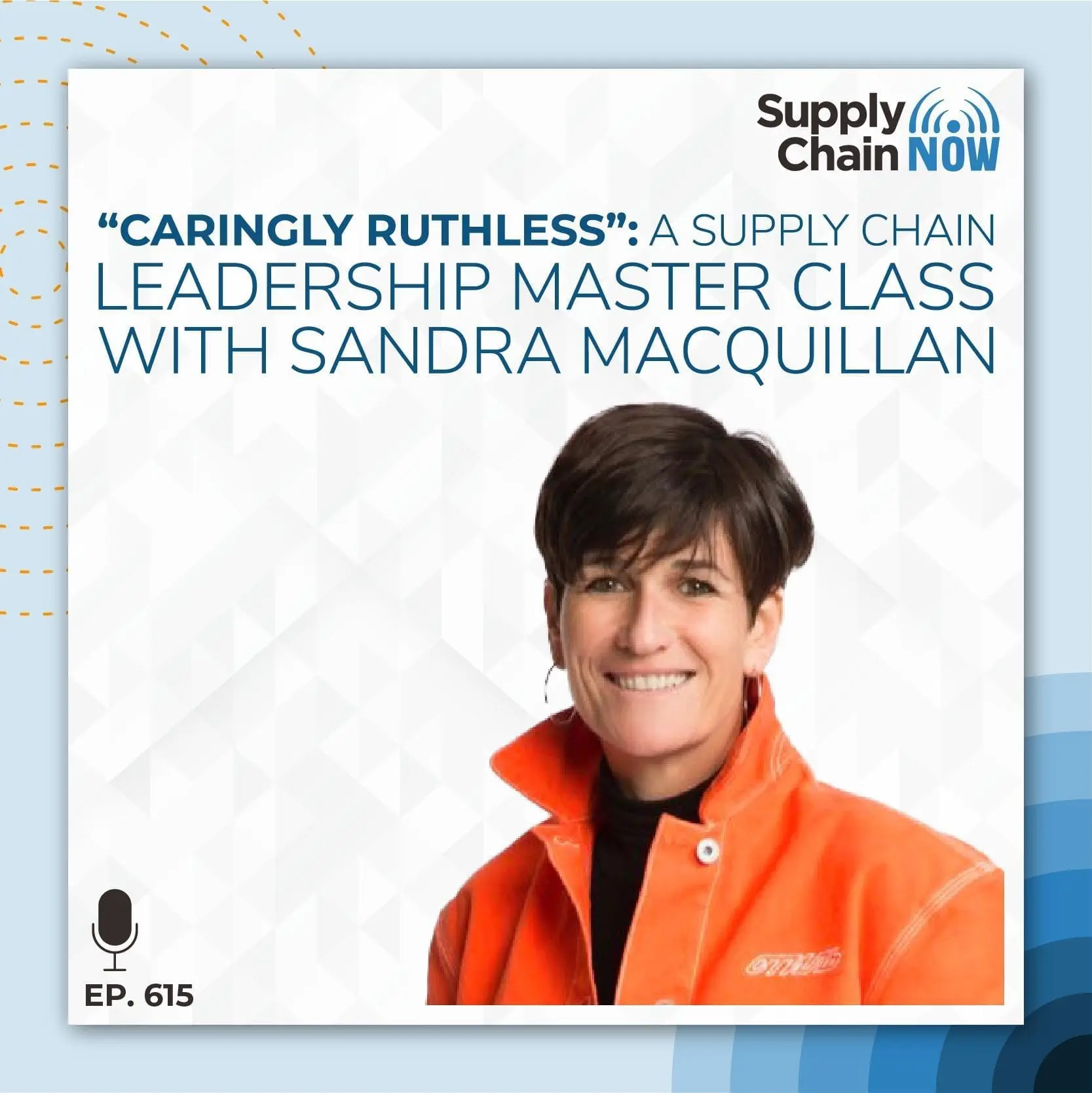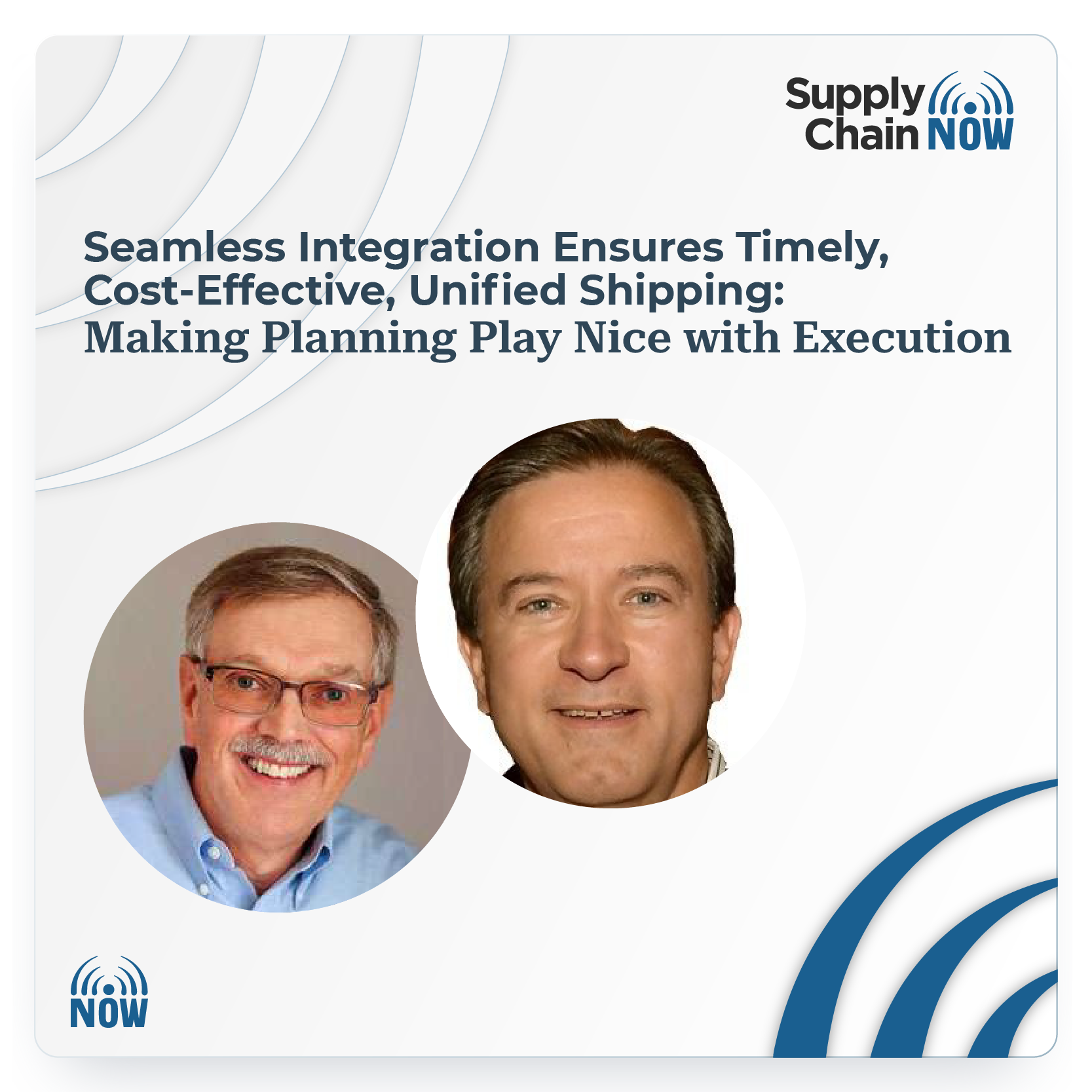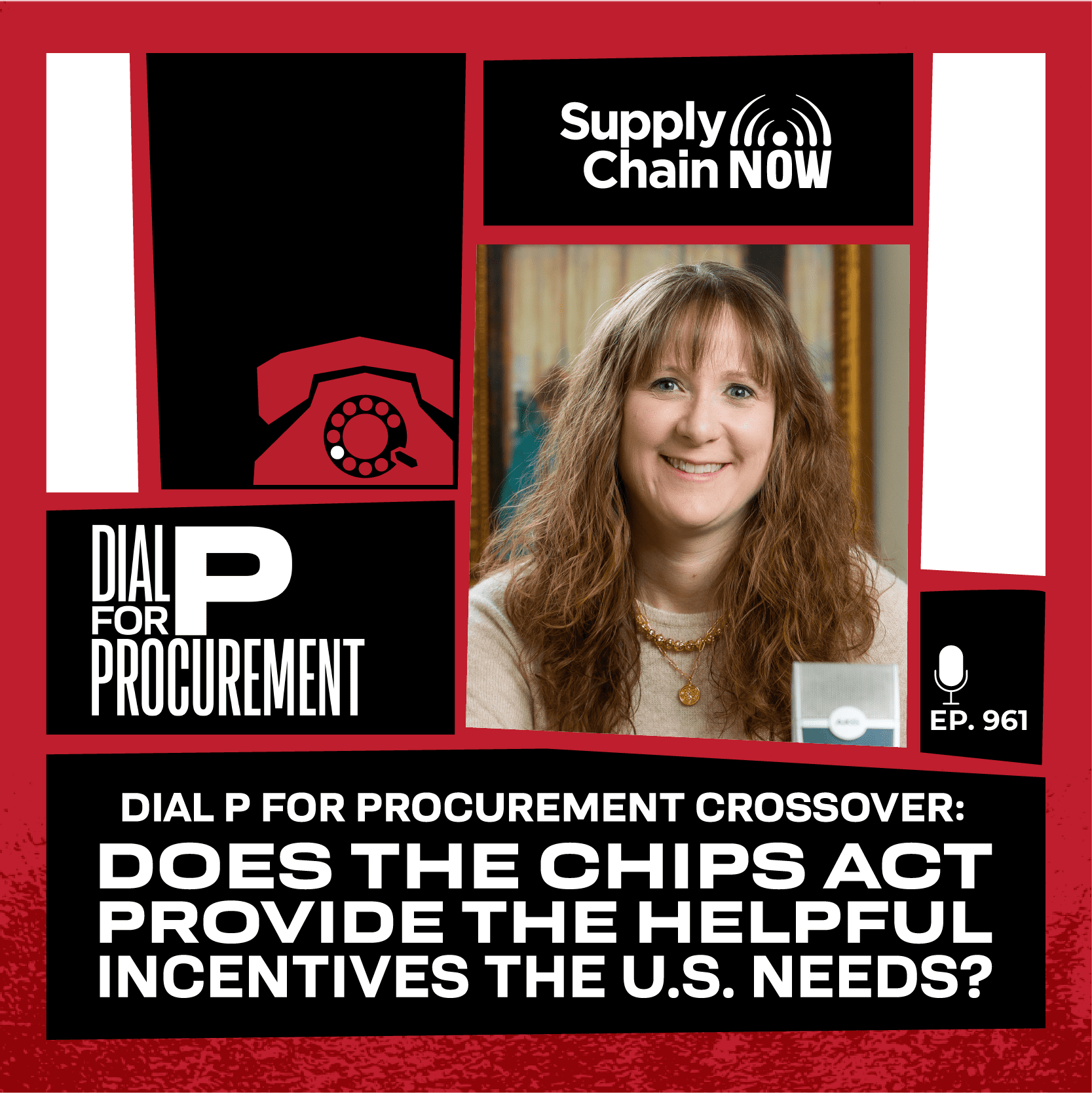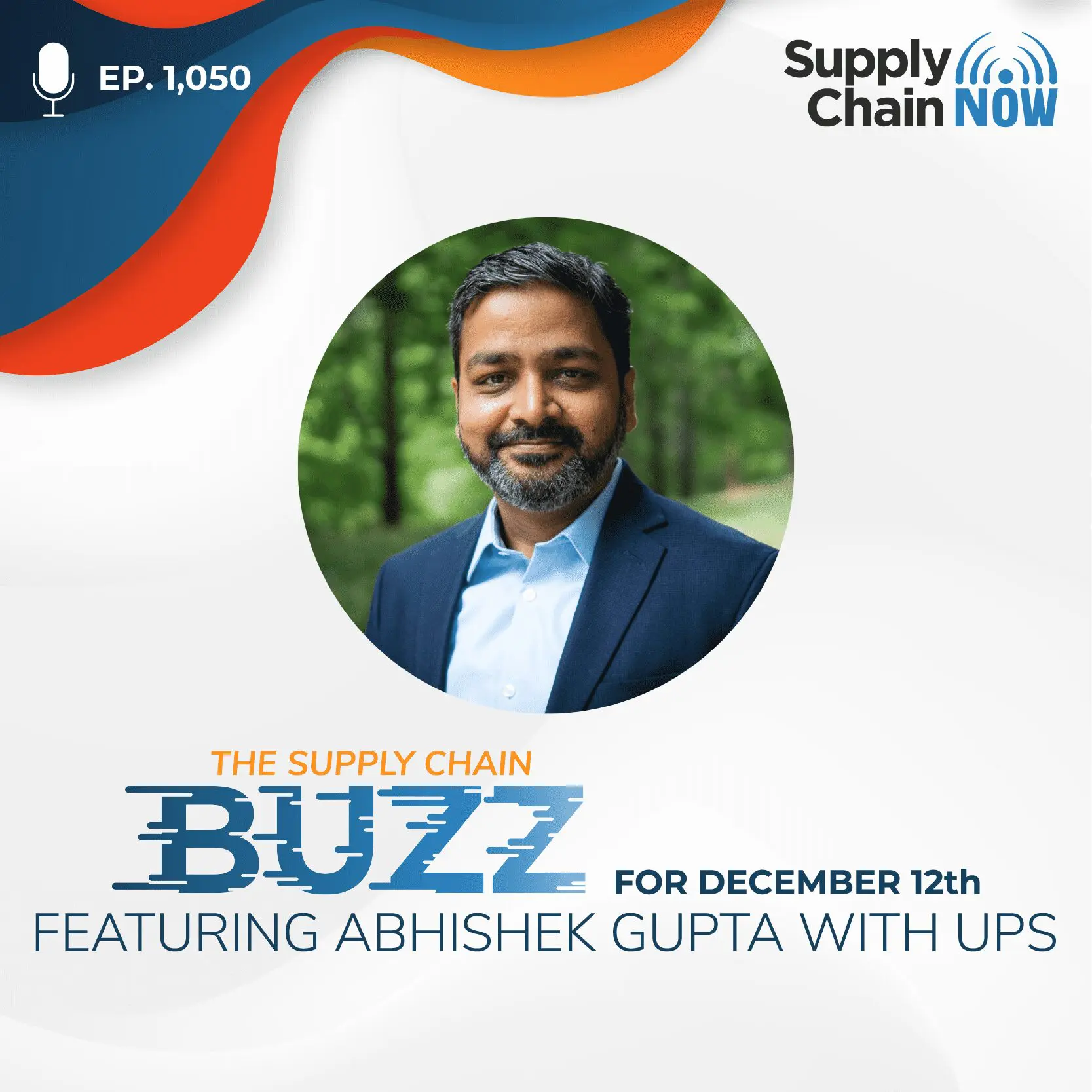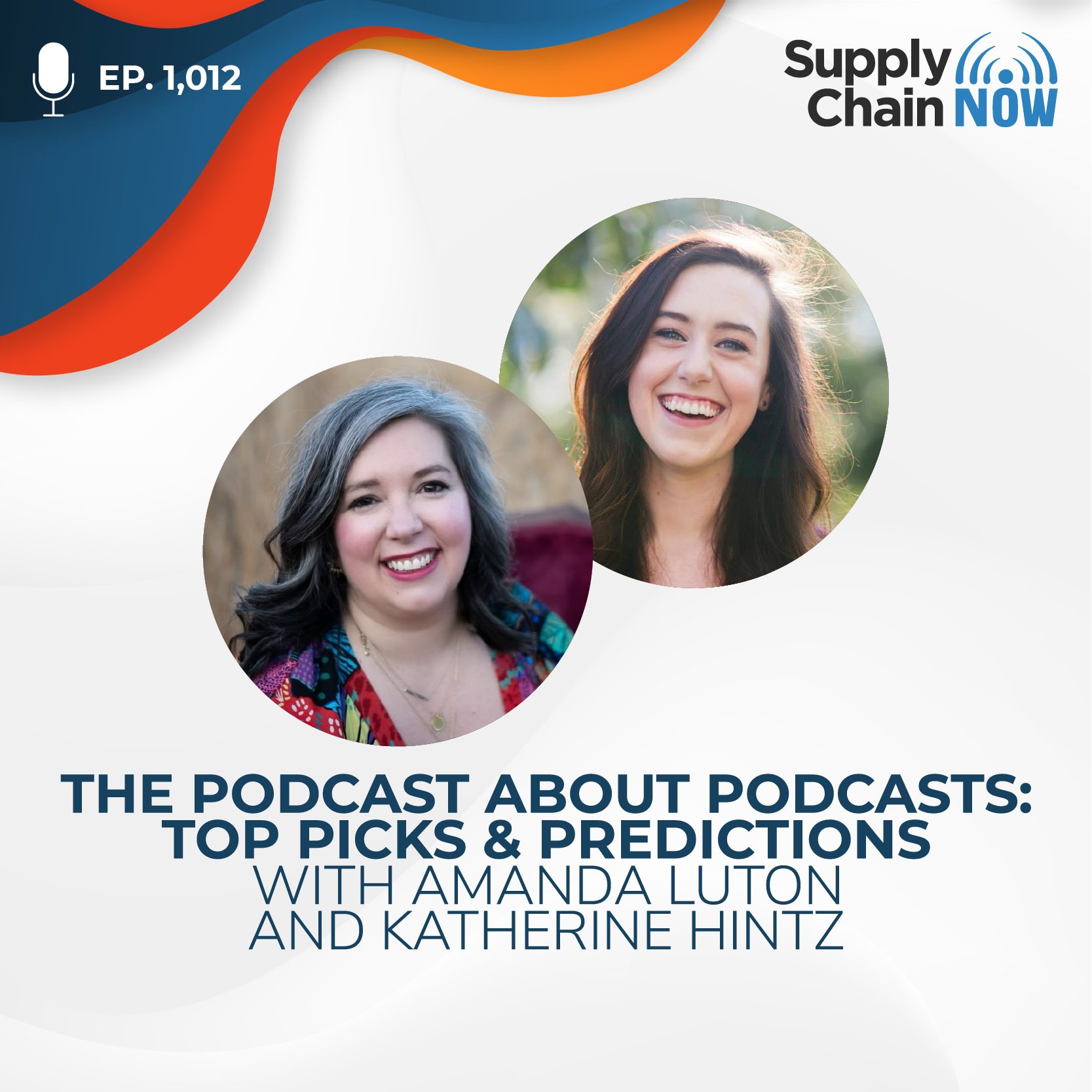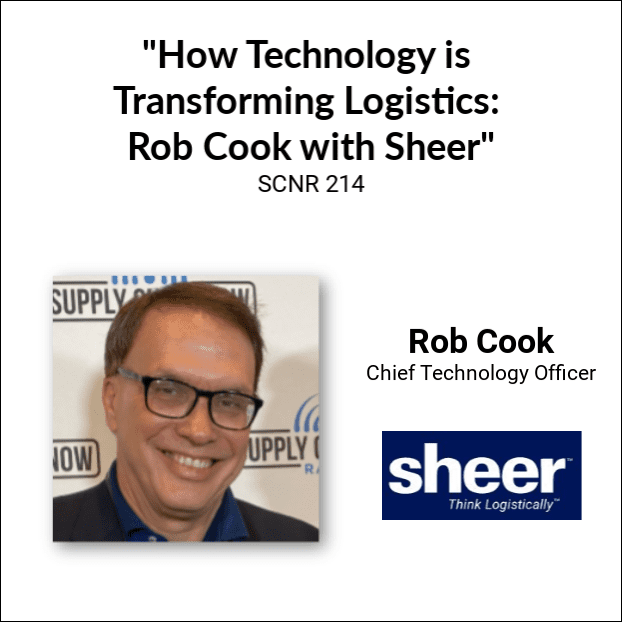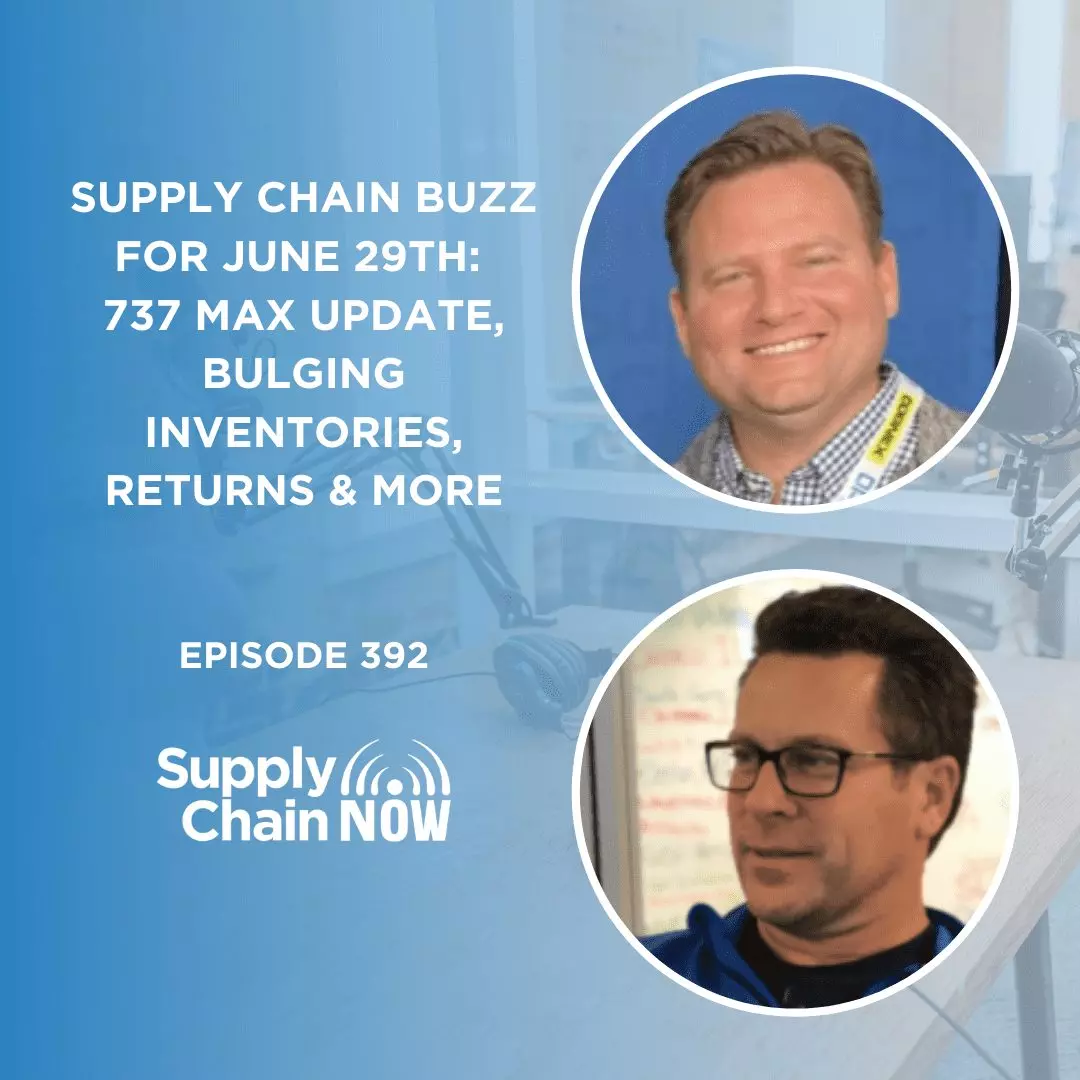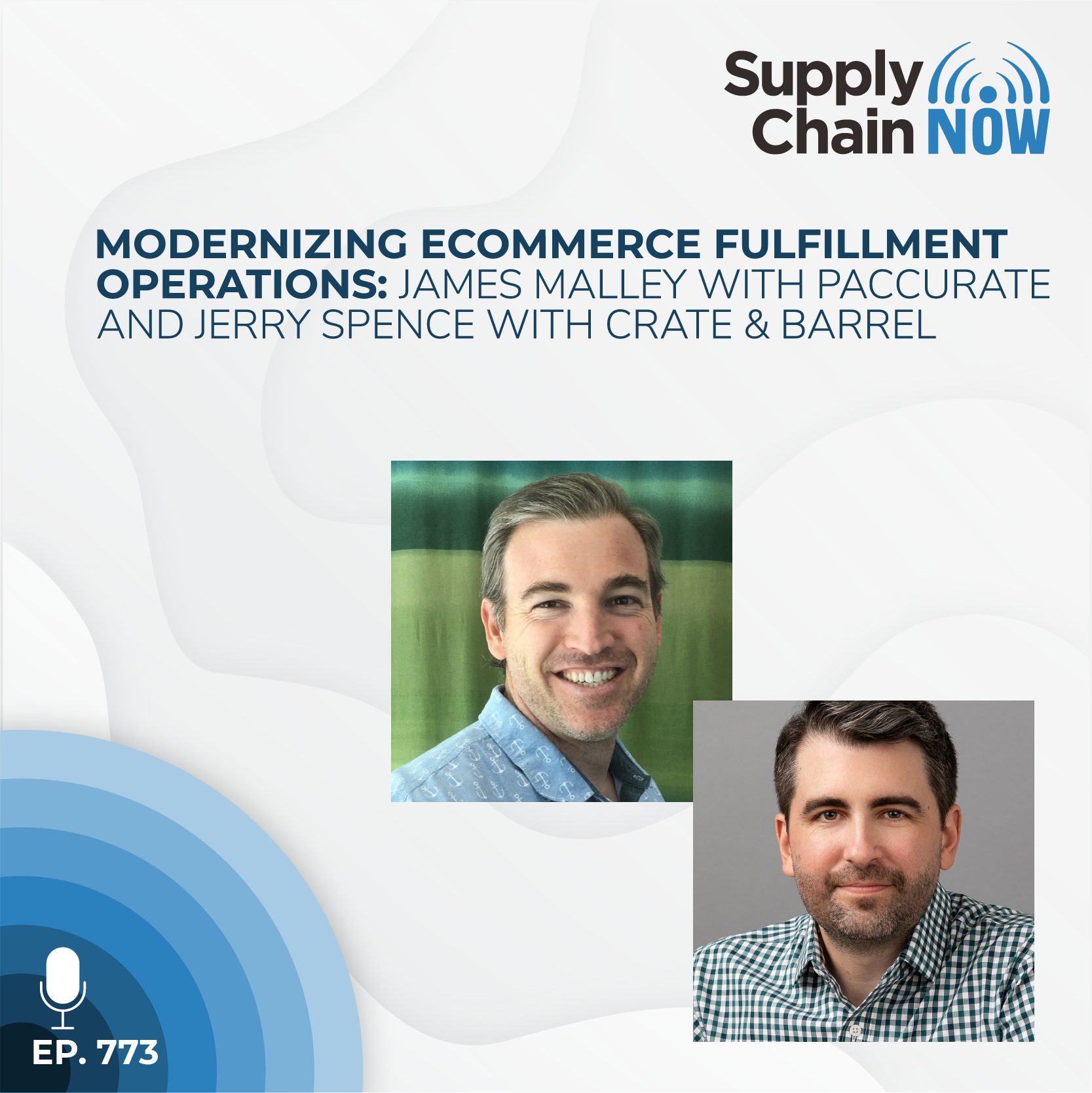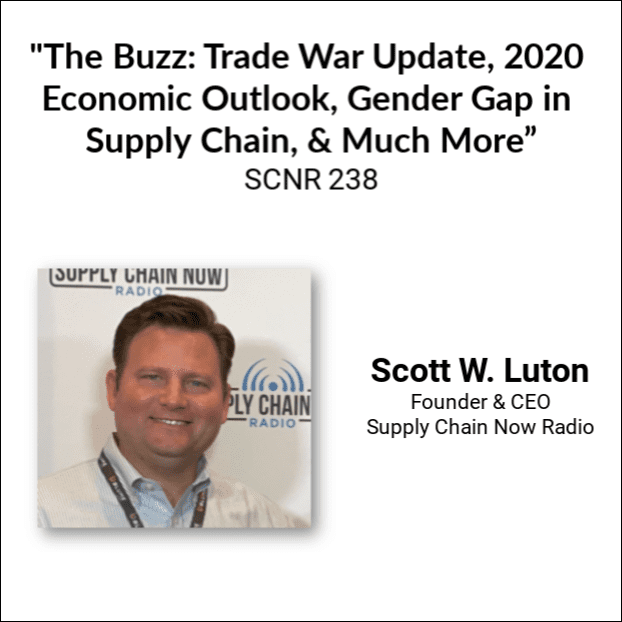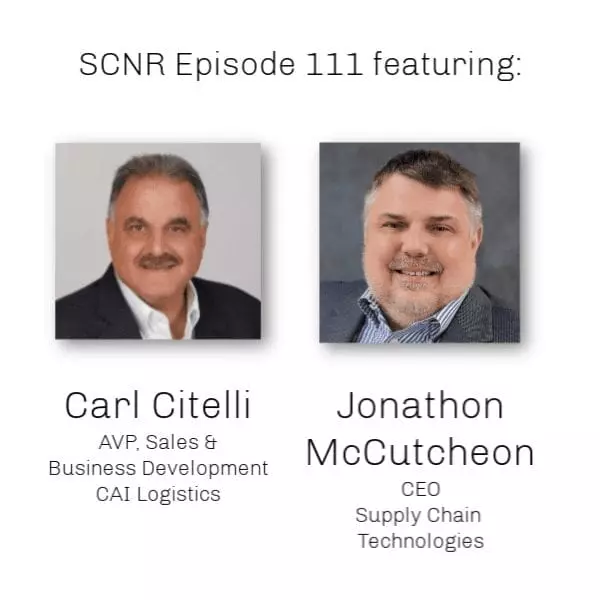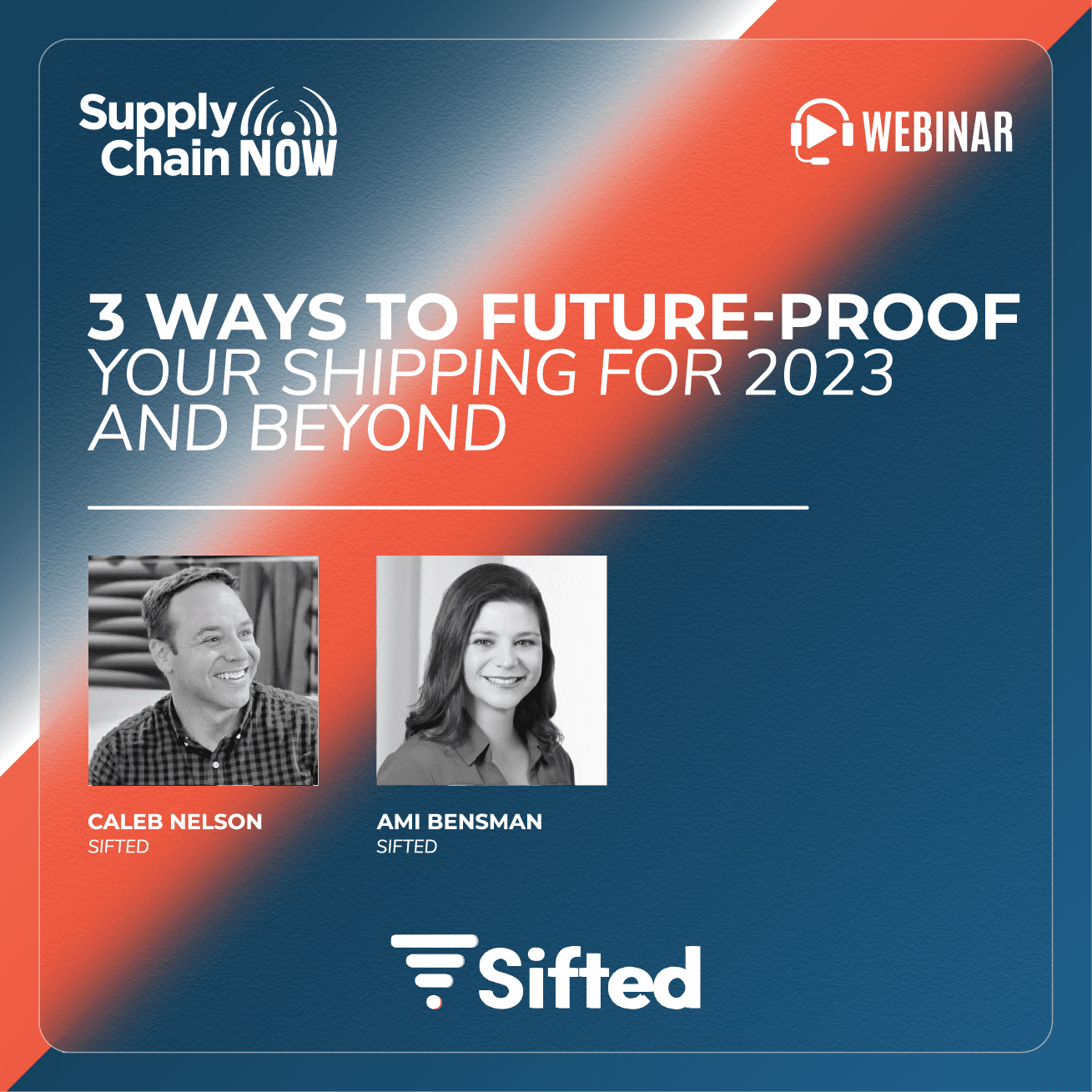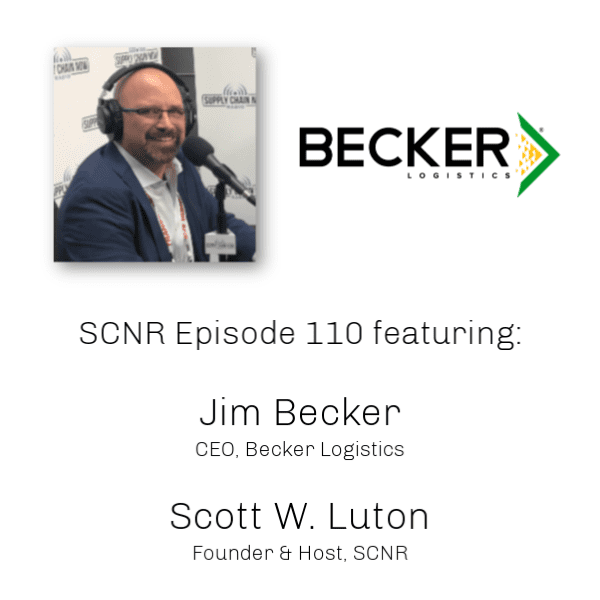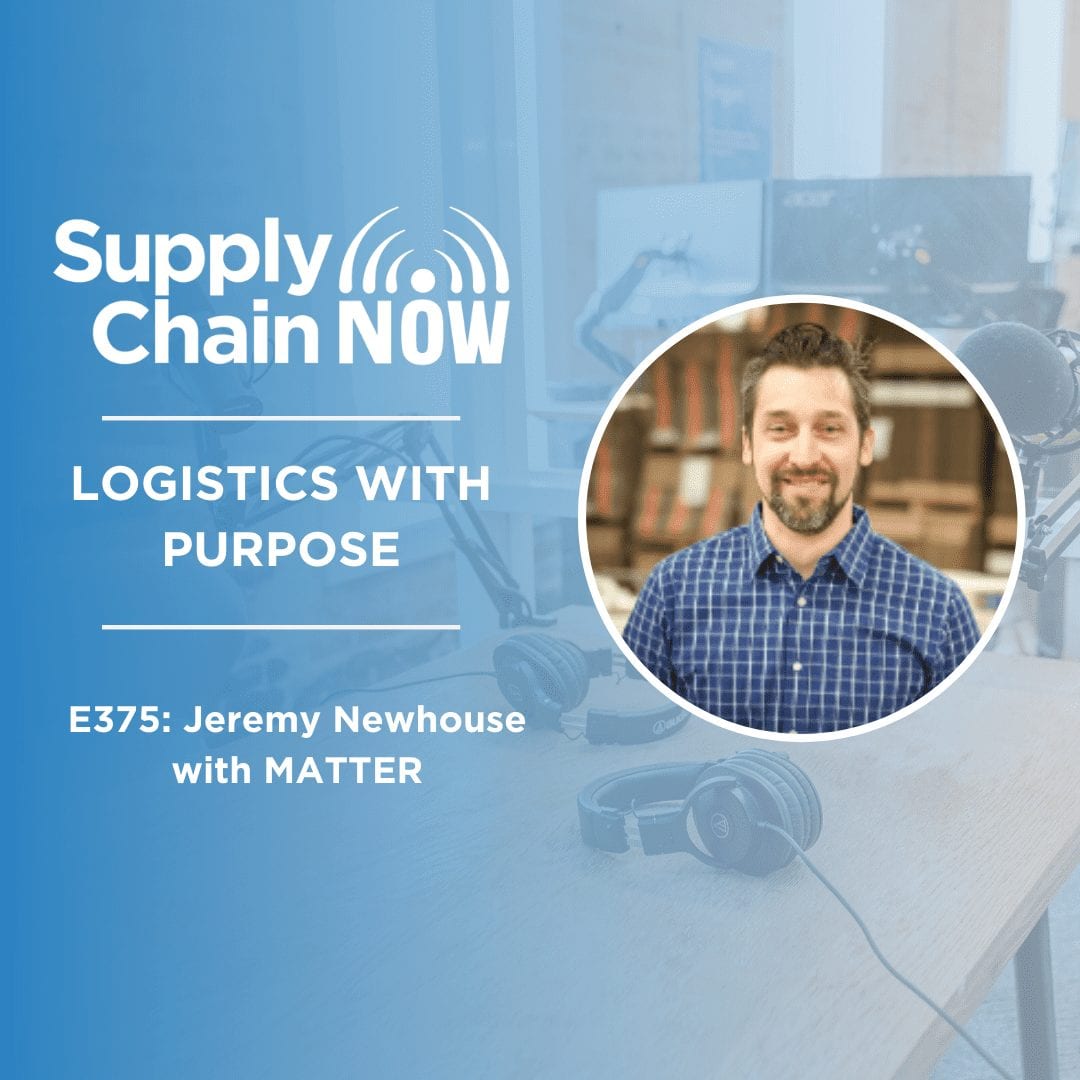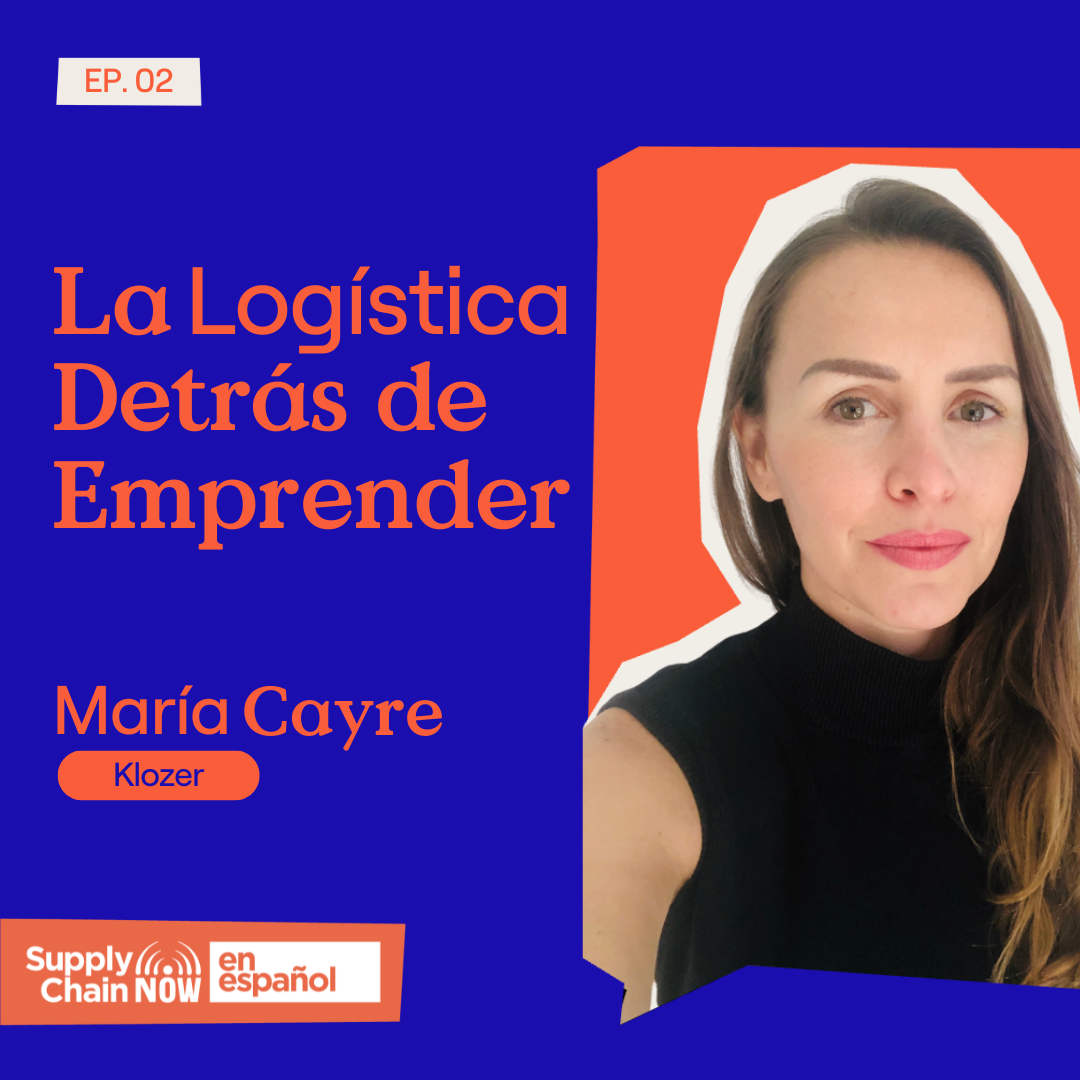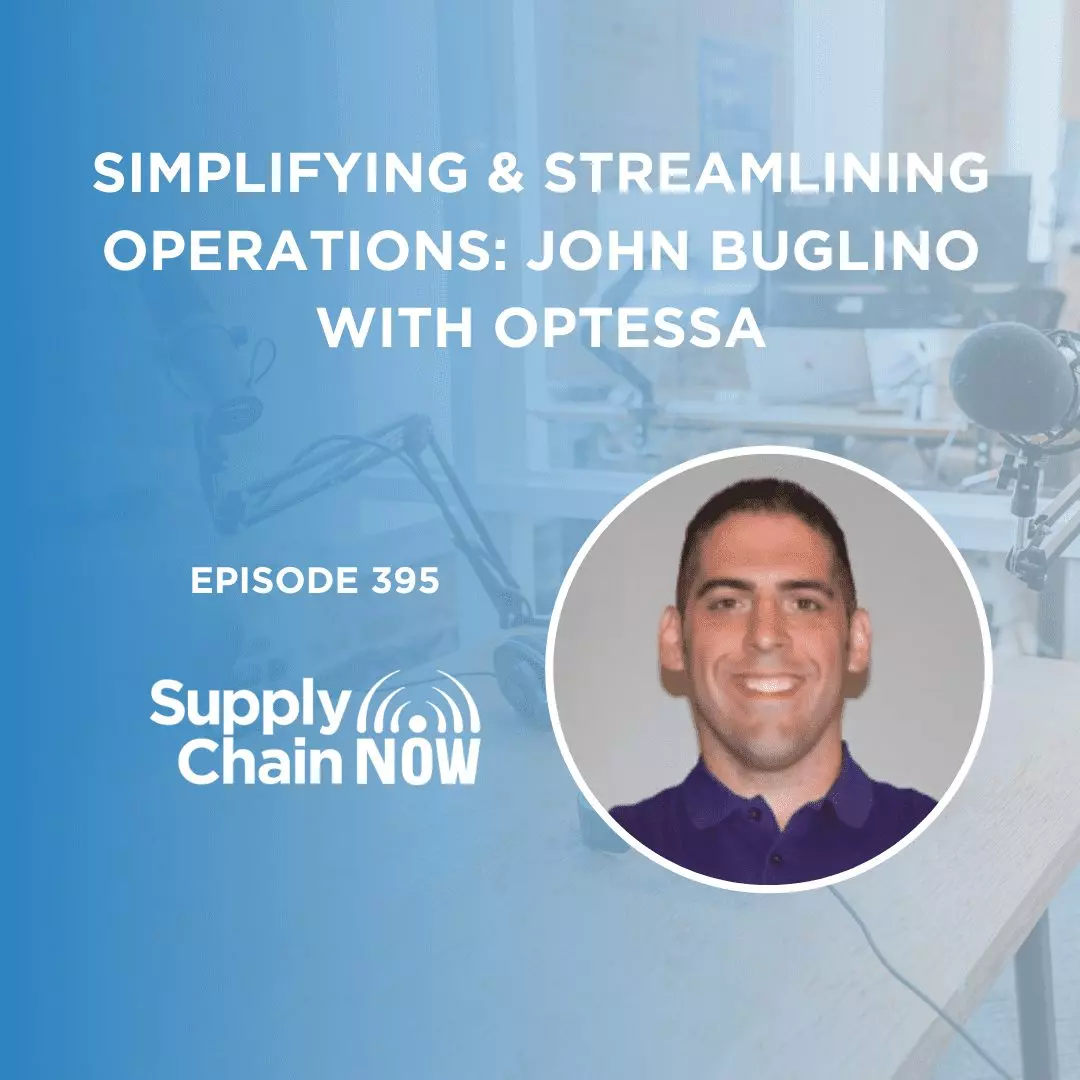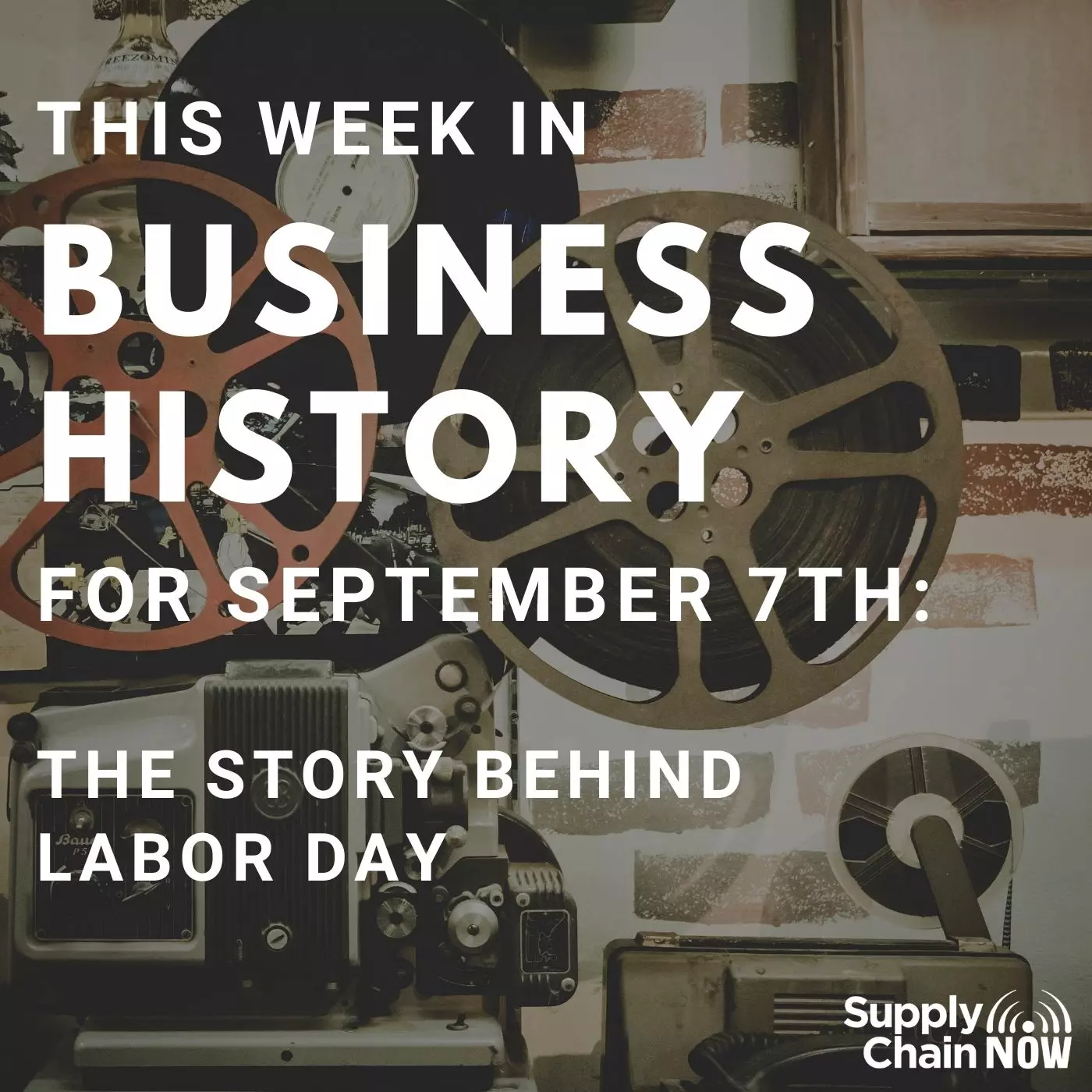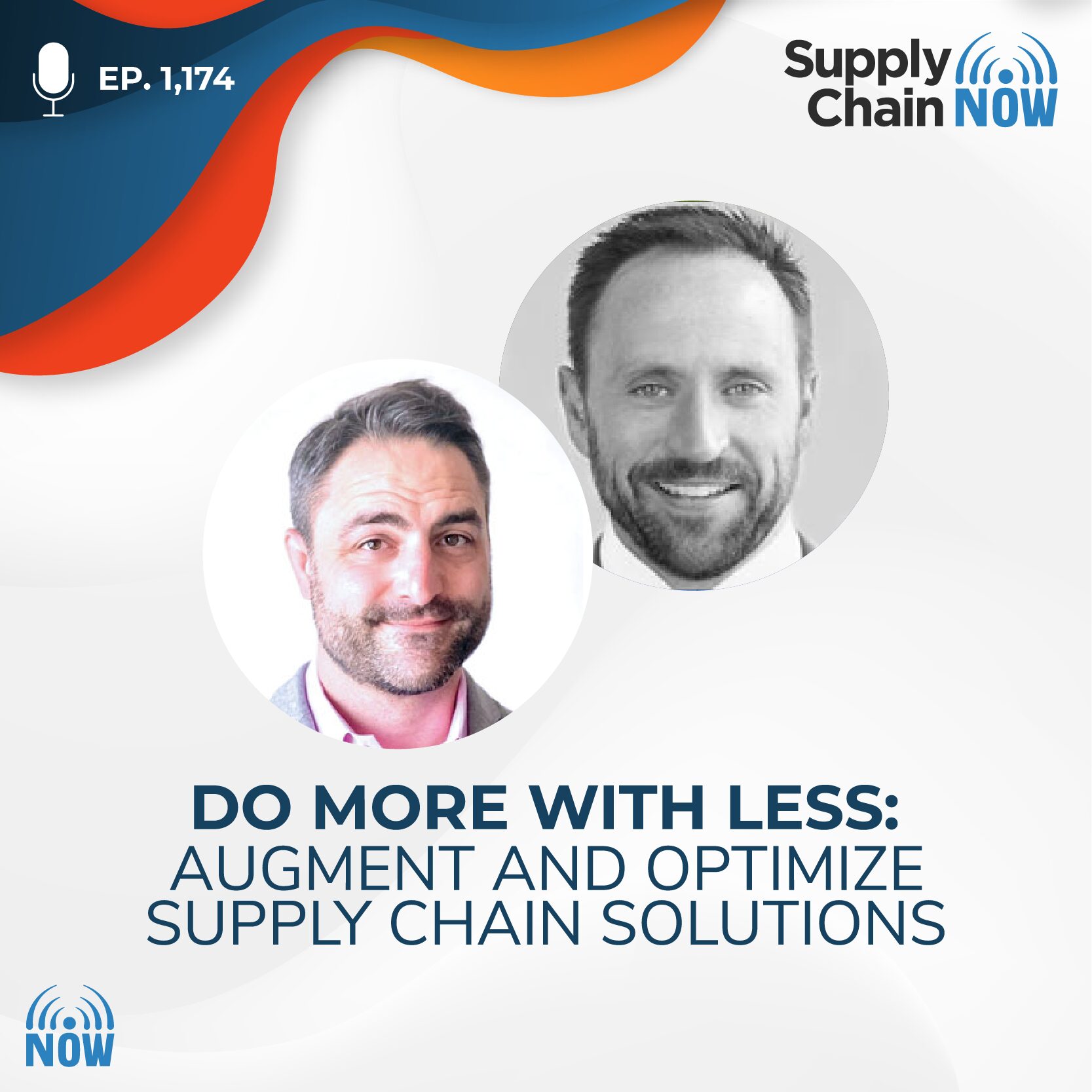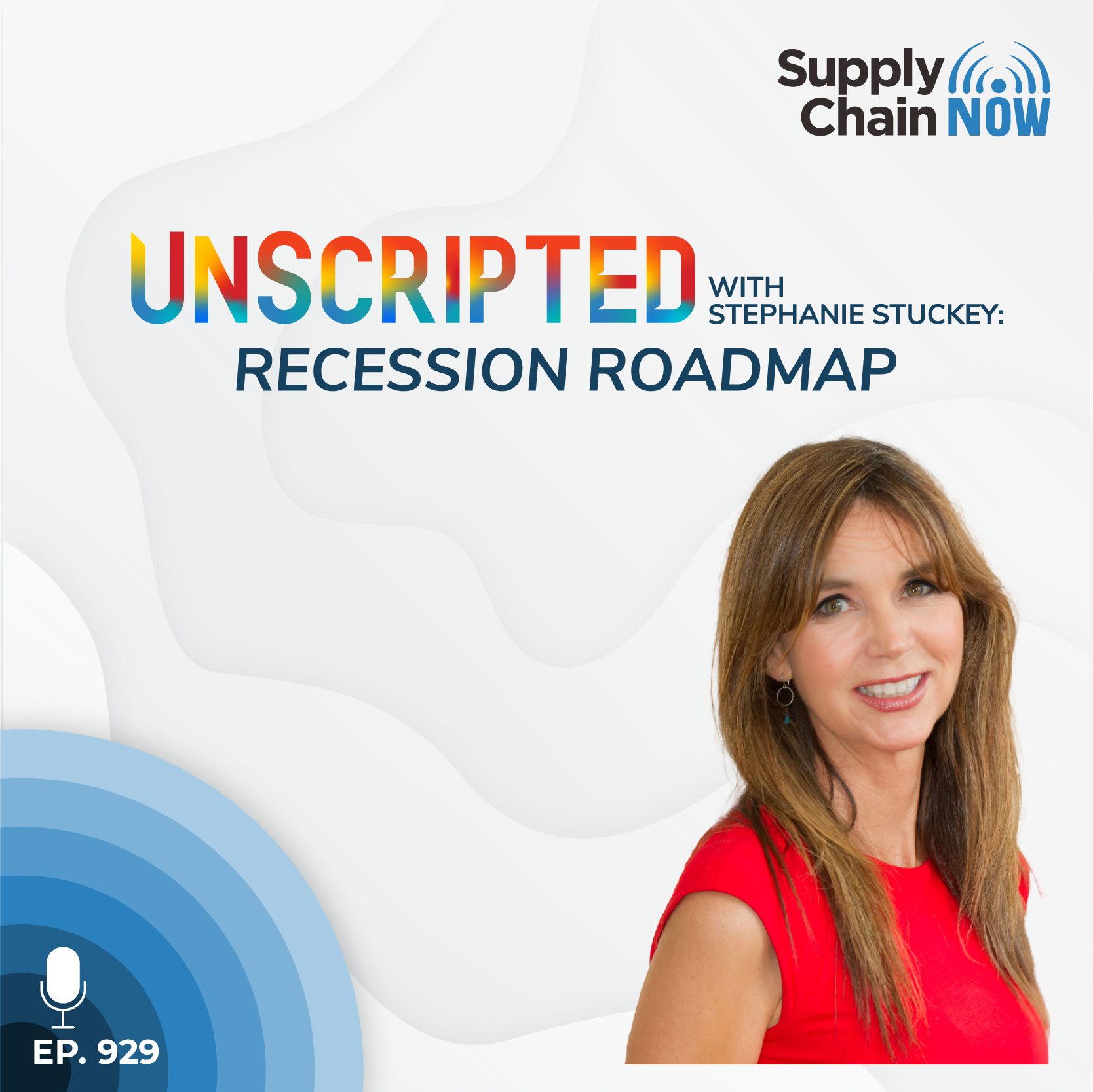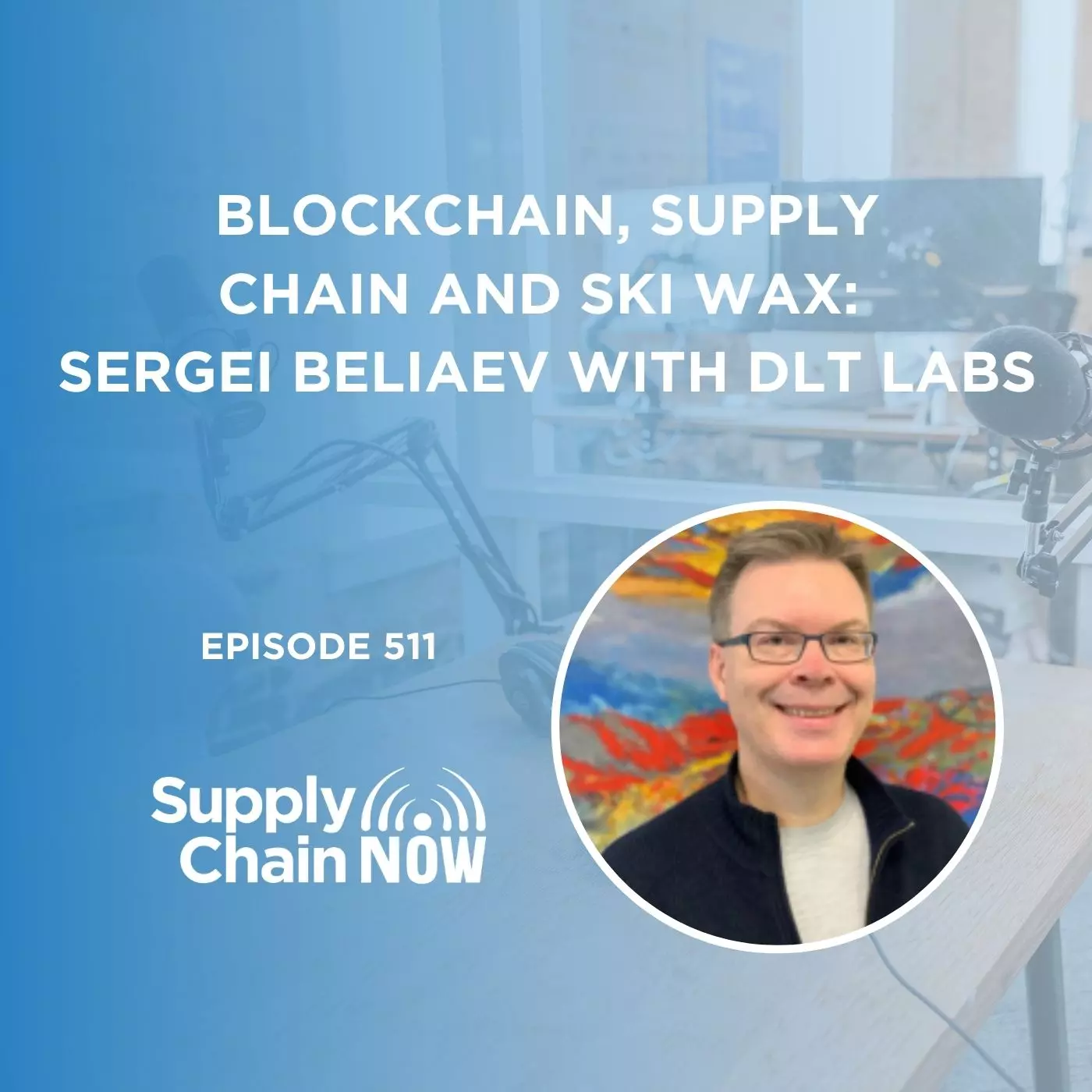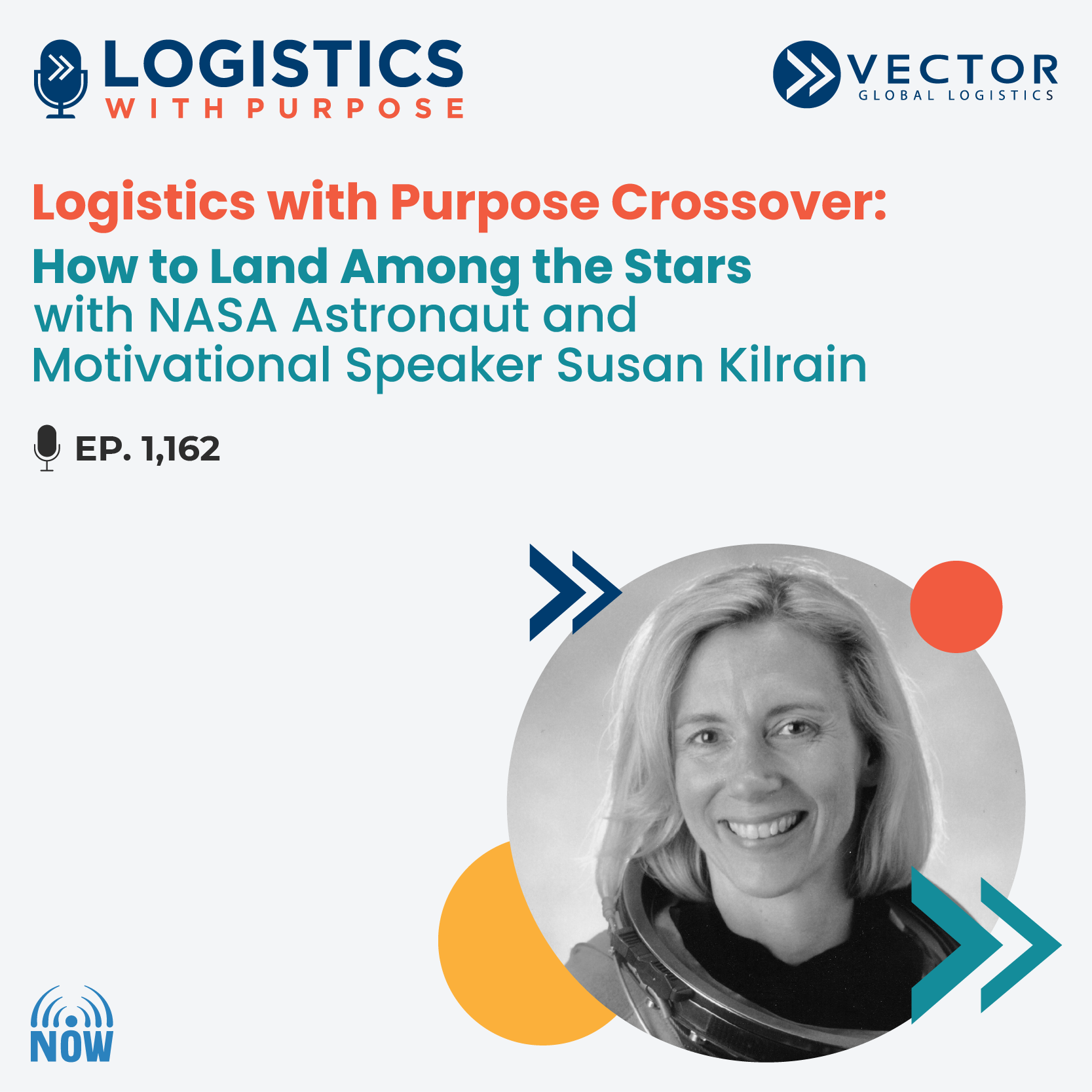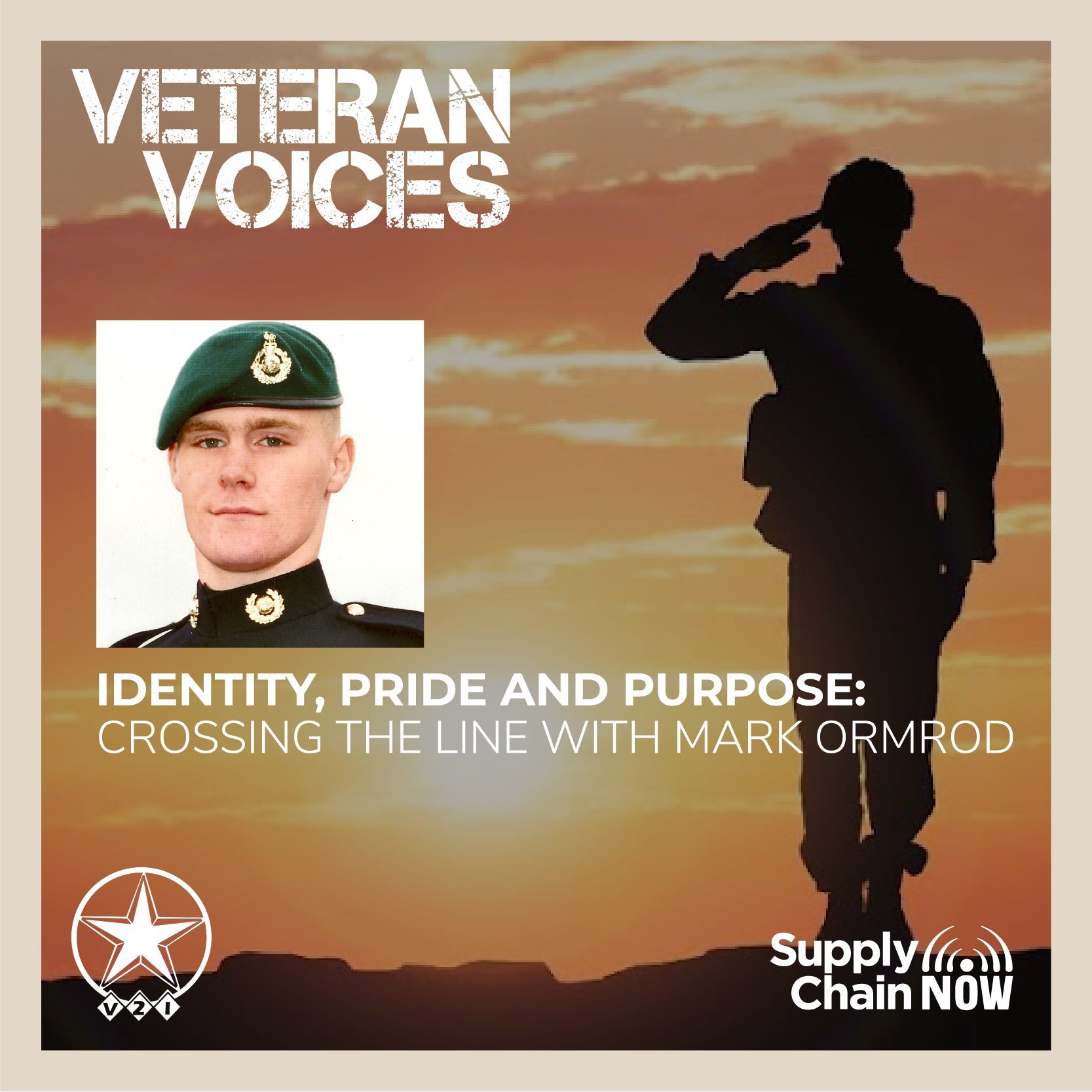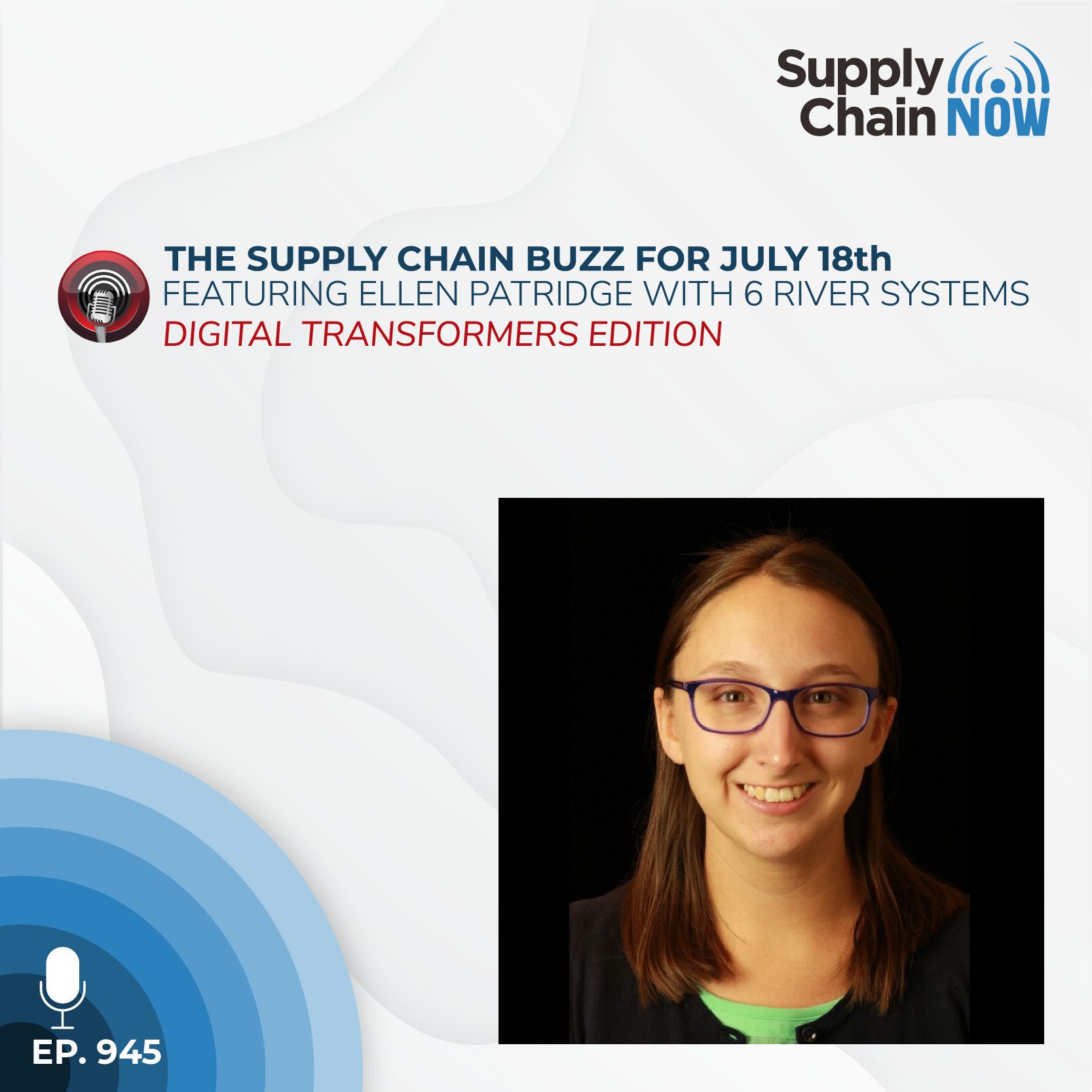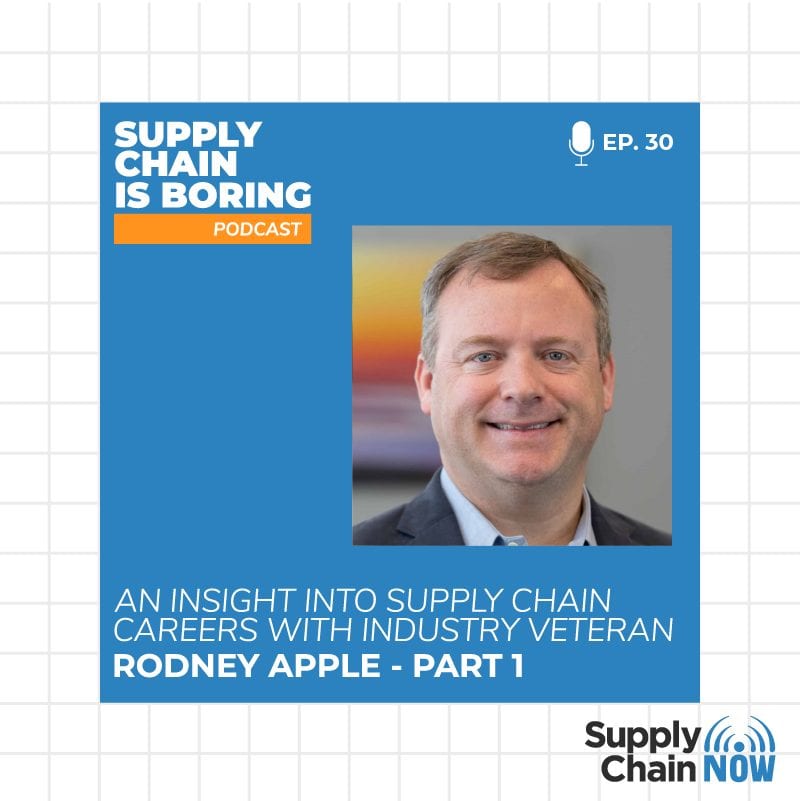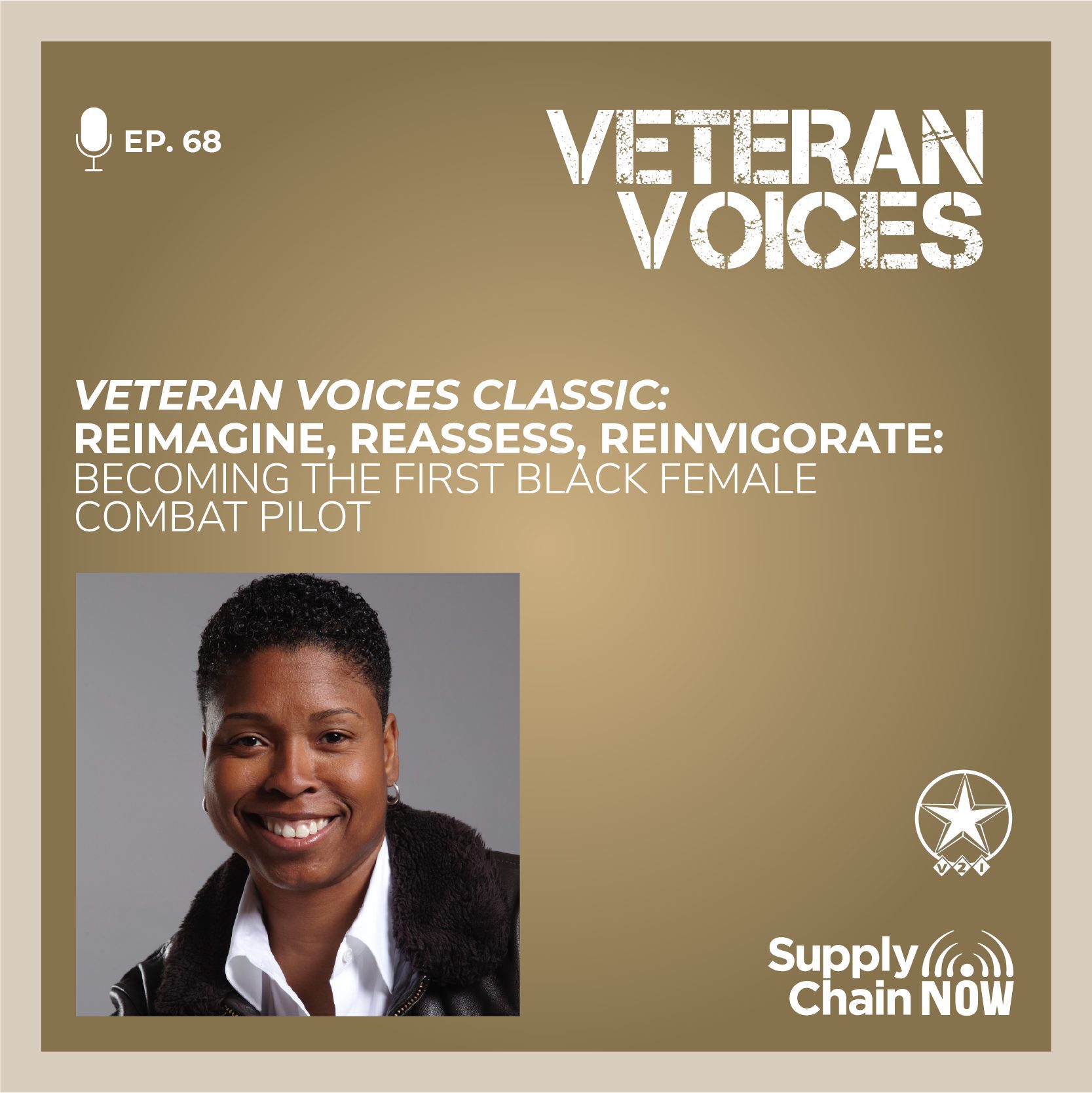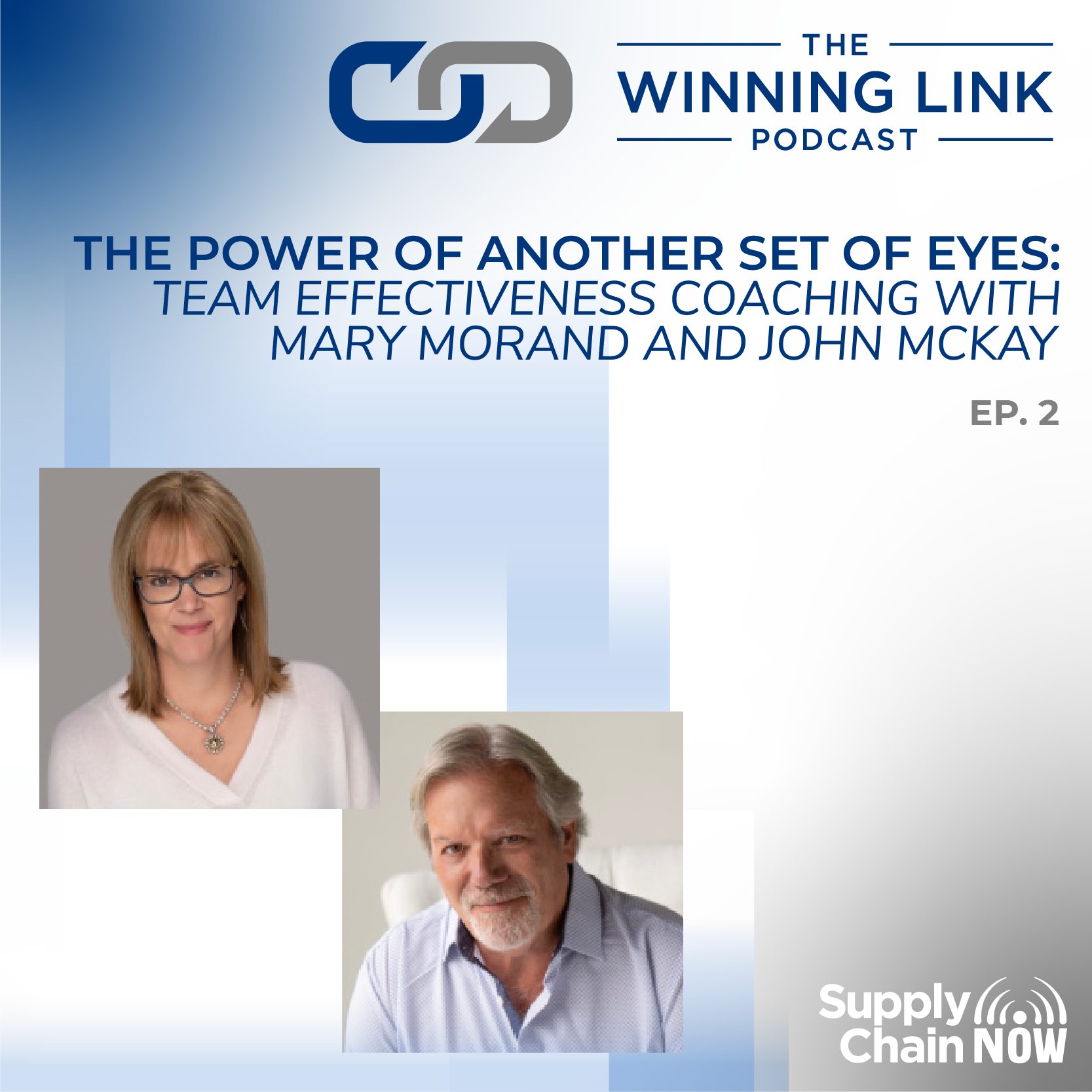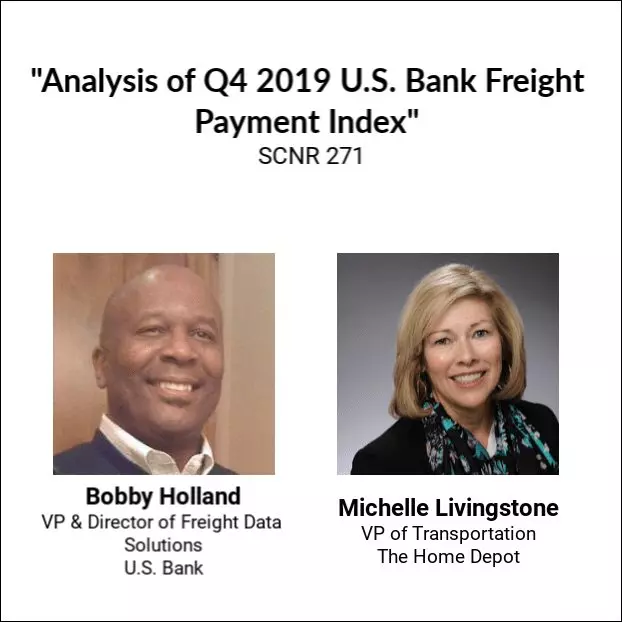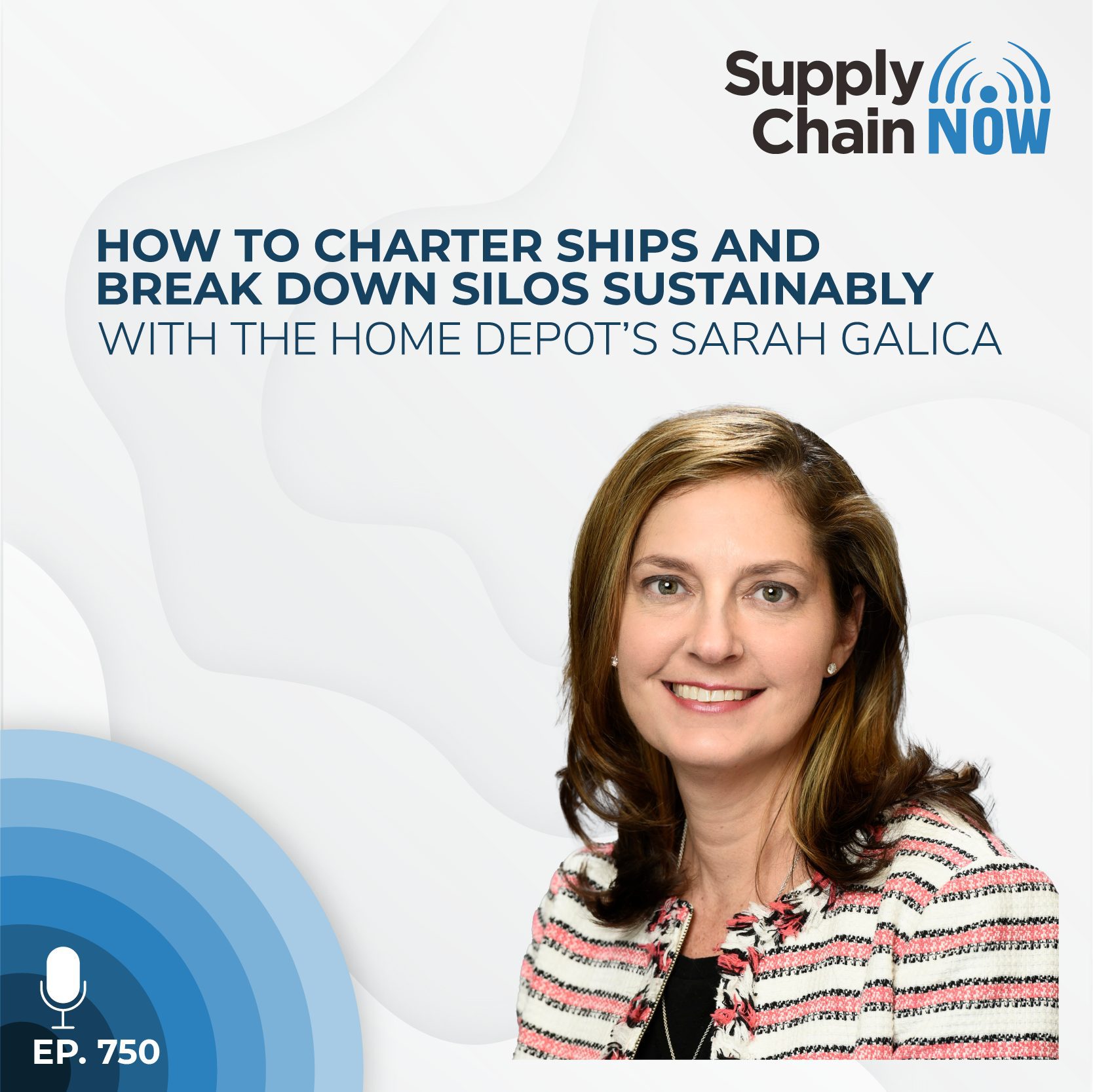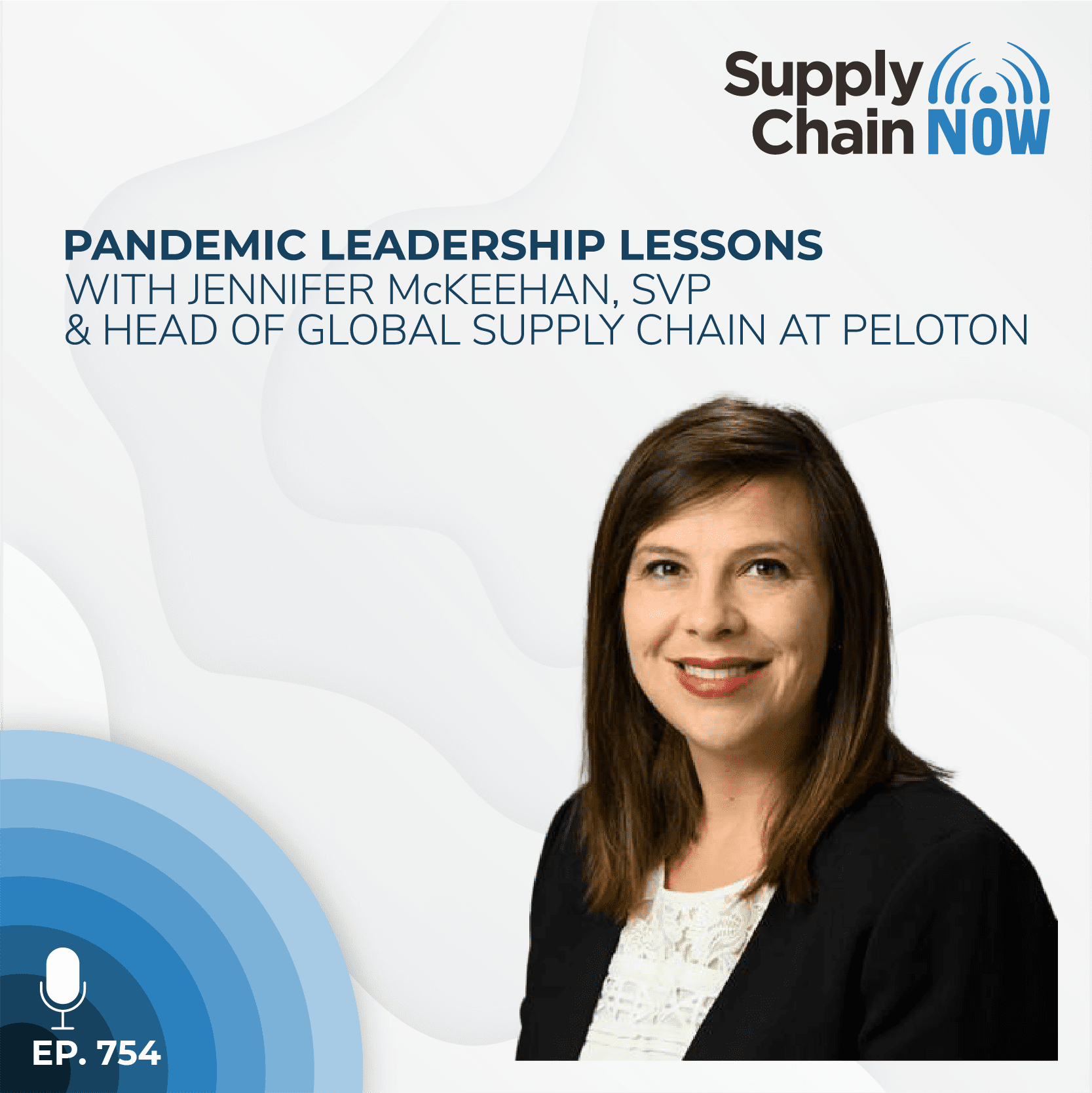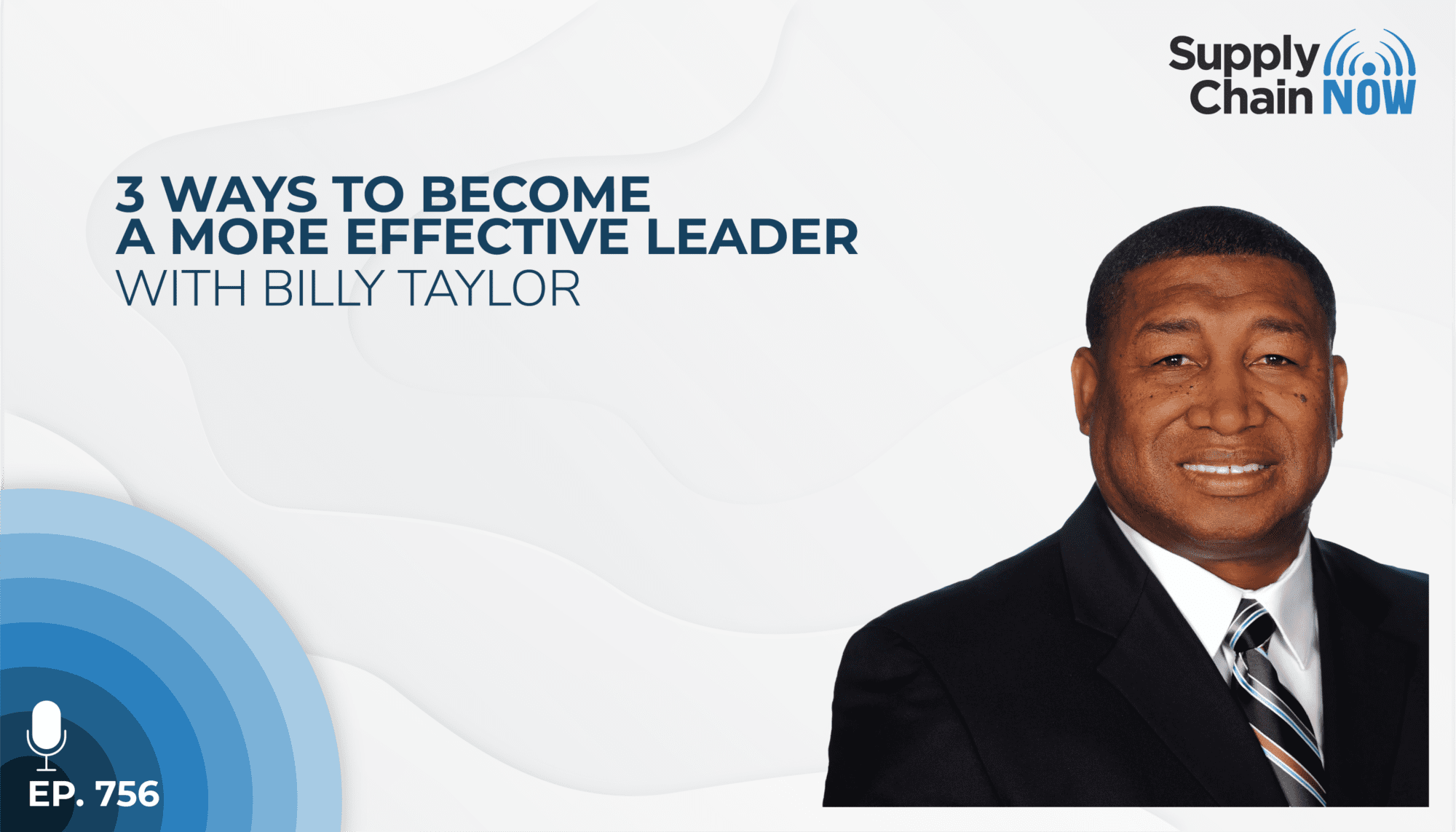
When leaders don't have standards and hold people to those standards, not only do they fail as a team, but they also fail themselves.
-Billy Taylor
Episode Summary
Failure is leased, not owned.
Diversity is an action.
Define, align – and visualize.
These are just some of the nuggets from host Scott Luton’s discussion with leadership expert and consultant Billy Taylor. If you’re looking for an episode full of quotable wisdom on becoming a more effective leader, you’ve come to the right place. Billy takes us on a journey from his earliest “eureka” moment as a young football player to his many lessons in leadership at The Goodyear Tire & Rubber Company. Whether you’re just starting out in your career or a you’re highly tenured team manager, there’s something for everyone in this wide-ranging discussion of the importance of failure, creating diversity of thought and continuous improvement. And hey, if you’re left wanting more, we’ve got some good news on Billy’s future as a podcaster to close out the program.
Episode Transcript
Intro/Outro (00:03):
Welcome to Supply Chain Now, the voice of global supply chain. Supply Chain Now focuses on the best in the business for our worldwide audience, the people, the technologies, the best practices, and today’s critical issues, the challenges and opportunities. Stay tuned to hear from those making global business happen right here on Supply Chain Now.
Scott Luton (00:32):
Hey, good morning, everybody. Scott Luton with Supply Chain Now. Welcome to today’s episode. You’re in for a treat. Today, we’re going to be talking leadership, leadership, and guess what, a lot more leadership, and we’re going to be talking with one of our favorite business leaders. You may recall our guest today on previous manufacturing-focused episodes, but today it’s all about his story. So, let me introduce our featured guest here today. Our guest is a highly sought after keynote speaker and leadership guru. I told y’all. He spent 30 years with the Goodyear Tire and Rubber Company where he served in a variety of roles, including Director of North American Manufacturing and Chief Diversity and Inclusion Officer. Our guest also serves on several boards of directors for several organizations to include the Association for Manufacturing Excellence. He’s also the CEO and President of LinkedXL, a business-operating systems architecting firm. We’re going to find out exactly what that is. So, join me in welcoming, Mr. Billy Taylor. Billy, how you doing?
Billy Taylor (01:34):
I’m doing well, Scott. Thank you for having me. That was a really nice introduction. I start asking who was that guy you were introducing, but thank you for introducing me. Thank you for having me.
Scott Luton (01:45):
You bet. Always a pleasure. And, today we really have the honor but also the luxury of spending all of our time learning more about your story. You know, you’ve joined me as a co-host here on, I don’t know, half a dozen episodes, where we’ve interviewed a variety of other folks, but today it’s about the Billy Taylor story. I’m looking forward to it.
Billy Taylor (02:02):
Thank you again. Thanks for having me.
Scott Luton (02:05):
All right. So, let’s get to know you better first. Some folks who may have seen those earlier episodes, they probably know that you’re a great storyteller. They probably have an appreciation for all those leadership roles you’ve had and probably an appreciation of what you do now, helping other organizations excel. But let’s assume they haven’t heard a lot of that and let’s get to know Billy Taylor first. So, Billy, first up, where did you grow up and give us the goods on your upbringing a little bit.
Billy Taylor (02:31):
I grew up in Fort Worth, Texas, as they say Cowtown. My whole life was there. And then, actually all of my schooling and upbringing was in the Texas area. I’m the oldest of four boys. So, I have three younger brothers and I let them know who’s the oldest, too. I don’t miss that opportunity. But, no, I grew up in Texas in a household of strong standards. Really, leadership was at the forefront of our house going up for my mom and the boys and my parents. It was always around what’s the standard.
Scott Luton (03:08):
All right. So, I want to ask about that. That’s probably the most unique, and we’ve asked thousands of people this question about their upbringing, and I don’t recall a single answer like that. So, a house of standards. So, give me one example of a clear-cut standard, a high standard that your parents put in place as you’re growing up.
Billy Taylor (03:28):
Well, it started with education, right? It wasn’t the old cliché and [inaudible ] very transparent on the call, right? And, inner cities where I grew up, people thought it was either athletics or entertainment that was your ticket out. Not in our household. My mother had a standards around education and she would always say wealth as education, wealth as learning. Right? And, she’d always say, when you know better, you can do better. And so, when we were going up, all of us were very good. My siblings and I were very good in sports. But if we made less than a B, we couldn’t play.
Scott Luton (04:00):
Really?
Billy Taylor (04:01):
Yeah. You cannot play.
Scott Luton (04:03):
Not the coach’s decision, the parents’ decision, right?
Billy Taylor (04:06):
Yes. By school standards, we could fail two classes, no pass and no plays if you could fail two classes and still be eligible.
Scott Luton (04:13):
Wow.
Billy Taylor (04:14):
But in our household, if you made less than a B, you couldn’t play. And so, in the 8th grade, as a young man, let’s talk about standards, I was the star of the football team and we were undefeated. And, report cards came out, [inaudible] want to play for the city championship.
Scott Luton (04:31):
Well, and just to level set for our audience, city championships in Texas is like the Super Bowl, probably anywhere else. I mean, Texas football reign supreme, right?
Billy Taylor (04:40):
Absolutely. Absolutely. And so, people, and when I say people, she took me off the team and a week before the game and from the principal to that landing director, everyone came over to my house to convince my mom to let me play. And, my mother would say to them and I hear it even ringing in my ear today. No, the standard is the standard. The standard is the standard. And, I remember the comment coming from me and I think, “Ma, how could you do this to me? You’re not fair.” And I said, “Mom, I’m going to play in the NFL one day.” And, her reply to me was, “Do you know what NFL means in this house if you make less than a B?” I said, “No, ma’am.” She says, “Not for long will you be playing.” And, she was right. And so, fast forwarding, actually not playing in that game was one of the greatest life lessons of my upbringing because my mother was right.
Billy Taylor (05:37):
And, all of my friends observed that. And, when leaders, when I say that, when leaders don’t have standards and hold people to those standards, not only do they fail as a team but they also fail themselves. And so, what my mom, she said, she talked to me about how much he agonized about making that decision as I got older, but she looks at me now and she says I know that was the right call. And, she says as you grow up, you’re going to have to make the same calls with people you lead, but will you hold them to the standards? So, we grew up in the house of standards, and not only just grades, cleaning up, housekeeping, everything around the house.
Scott Luton (06:14):
Well, I’m sure you can write a book bestseller just on your upbringing. And, we won’t do a justice here in a little bit of time we have, but really quick Fort Worth, Texas. What was it like growing up in Fort Worth? I’m not sure – I know it’s the DFW, Dallas Fort Worth area, but I’m not sure if I’ve ever spent any time in Fort Worth exactly. What was it like?
Billy Taylor (06:34):
It was to me, one word, country, and, you know, it’s not the big city. Stockyards. We would go to the rodeo every year. That was a big thing. Fat Stock Rodeo was what it was on the north side of town. Horses. It was nothing to see a horse riding down the road and cowboys. And, we all wanted to be cowboys growing up and I don’t mean Dallas Cowboys.
Scott Luton (07:01):
All right. Well, and I imagine barbecue is big in Fort Worth, well, probably all things beef, I imagine. Before we move on to your professional journey, is there a certain restaurant, hole in the wall place, or barbecue joint, you name it, that was iconic and played a big role in your upbringing?
Billy Taylor (07:21):
Not coming up, but when I got to college, there was a place, Prairie View A&M. Historically black university and colleges where I graduated from, they had a place called Bruno’s, and what they were famous for was a Bruno baked potato. It was a big barbecue baked potato, and you’d line up to get that baked potato when you’re in college. And, it just resonated, right. You save up all week to go get you that one baked potato a week. And so, that’s what resonates with me.
Scott Luton (07:51):
Bruno’s. I love it. And, gosh, lean times as college students. I can remember I bused tables in one of my jobs to college and, you know, made $20 maybe on a good shift after, you know, the tip outs and stuff. And, we had to find a way to make that last a long time. So, a baked potato sounds great to me.
Scott Luton (08:12):
All right. So, let’s shift gears a bit. Your professional journey, you know, again, 30 successful years, and then some at Goodyear where, I don’t remember the exact numbers from what the earnings were when you began and the billions of dollars where it grew to by the time you wrapped up your career there, but tons of growth. Let’s talk about a couple of key positions there or elsewhere that really helped shape your worldview.
Billy Taylor (08:36):
Absolutely. I started out with Goodyear as a management trainee, and I was actually on third shift, actually, and what’s called the Banbury’s and it’s a real dirty area. And, I learned the core elements of being a good leader coming up in that position. I was on third shift working with the union, strong union United Steelworkers Union. And, that’s why I started to make my mark as a young leader, progressing through Goodyear.
Scott Luton (09:03):
So, if I can, really quick question, Billy, I think for some that may not get it and really for my clarification, when you’re a management trainee, you’re on the management side of the table, right?
Billy Taylor (09:13):
That’s correct.
Scott Luton (09:14):
And, that means you’re not on the union side of the table. So, I imagine there were some early lessons learned in your career of how that worked, right?
Billy Taylor (09:22):
Yes, absolutely. There’s a bit of bargaining when I say that, give and take. But more importantly when dealing with the unions, right, it’s important to make allies not adversaries. And, you do that by earning their trust. Right. And, when I say that, one of the things that I quickly learned was there’s two rights when you start earning the right to change. It’s a technical right. Okay. And the cultural, right. The technical right is I give you a check. I give you work instructions. I give you a job, just go do your job. Those leaders, they don’t last long. The cultural right is respect, trust, understanding differences, embracing differences. And, when you actually are in both rights, the technical right and the cultural right, most unions will become allies with you. And so, for me, that’s what I did. I was very deliberate around how I communicated. I was very deliberate around not only letting people know what they own in the process and that’s how I built relationships with unions.
Scott Luton (10:29):
I love that. You know, far beyond just manufacturing plants so I think if we all work to create more allies rather than adversaries, the world would be a much better place, right, especially being deliberate about it, which is kind of what you’re painting. All right. So, again, keep positions that shaped your worldview. What else comes to mind? And then, we’re going to get to your key Eureka moments.
Billy Taylor (10:49):
So, as I rose through the rank from my manager trainee, I actually moved to being a specialist or a production specialist that talks about improvement and efficiencies and that was my job. And then, I got tapped on the shoulder to run a small business center or department. And, that was a lesson ’cause I was so young and the people that hired me and trained me were now reporting to me. And, that was difficult and a valuable lesson to learn there, going back to my upbringing standards, I was trying to get people to like me. I wanted to be liked instead of focusing on being respected and trusted. But that started with me, right? There’s two things that I learned in that role. One was around what do people follow? People follow credibility and capability. As a leader, what do children follow? Credibility and capability.
Billy Taylor (11:45):
And so, as a leader, then I realized, you know what I’m not trying to be friends with them. I’m trying to be a leader. I want to be very clear and you’re going to hear the word deliberate a lot, very clear on what people own because what I realized in the absence of ownership comes blame. And, when people don’t know what they’re owning and you’re not deliberate about it as a leader, they start blaming you for their mistakes. And, at that point, when I talked about credibility and capability, and I’m going to go to deliberate ownership, as a young person I realized I’m going to have to be deliberate around what everybody owned in the strategy. And, it was interesting people. My friends tried me. They’ll come to meetings late. They wouldn’t – I’m serious, though. They wouldn’t show up to meetings, and it was just, you know, it was really tough the first six months in that role. It was tough for me. But it wasn’t long that I caught on. And, going back to my mother’s lesson, the standard is the standard.
Scott Luton (12:48):
Right. The standard is the standard. You know, that bit of clarity makes things a little bit easier. Right?
Billy Taylor (12:55):
Absolutely.
Scott Luton (12:57):
And hearing you describe those early days at Goodyear and even if they were tough early days, it seems like to me that leadership would be better in other companies, manufacturing otherwise, if folks kind of started on the plant for, you know, doing what they eventually would manage. Was that a big benefit to your career with Goodyear?
Billy Taylor (13:20):
Well, that was a benefit understanding, right, what I was expecting I should do, but the greater benefit is also as everybody needs a coach. And, when you’re starting to go to your ranks, be humble about that. Ask for that help because you know what Bill Belichick has a coach. Although he coaches others, he has a coach. And so, everybody needs a coach to help you see your blind spots, to help you navigate, right. The worst thing I think leaders can, the worst approach is to think you know enough to know you’re right and not being willing to learn to know when you’re wrong. Because now you’re going to keep doing what your old paradigms are. You’re going to keep going down that road and you’re not willing to change, you know, and quickly what I realized when I became that young manager was, you know, I tell people I had 13 degrees, right. I have 13 degrees and they’re like, you’re pretty smart. Absolutely. I was smart enough to earn two and higher 11. Okay. And, I use all 13 of them because, you know, I’m not strong in some of those places.
Scott Luton (14:32):
I love it. Speaking of not strong, I heard a phrase the other day. I don’t think that was on a show. I think it was a private conversation. And, it could have been a bit of negotiation. It could have been just something. We were doing numbers. And, I made the comment, “Hey, I’m not math. I had any calculator.” And then, the person I was with said, “Well, I’m not good public math, so, yes, let’s grab that calculator.” So, it was really a lighthearted moment, but, you know, we all have our weaknesses.
Billy Taylor (14:57):
That’s right. That’s exactly, right.
Scott Luton (14:58):
And, you know, I think one of the things that you’re speaking to is that outside [inaudible], right. You know, you can be Bill Belichick and have all the rings he’s got. You can be Michael Jordan and have all the rings he’s got. You can be Ric Flair and all those wrestling championships. But they’re always, there’s someone that sees you from the outside with a different perspective and always can see something that you cannot see simply because we’re human, right, and we can only be so self-aware, right?
Billy Taylor (15:28):
Absolutely. And, when I look at, you know, and the best of the coaches understand that. They embrace the fact that success is required as you have others around you. And, I read a lot of books and I look at a lot of video. I try to read two books a month.
Scott Luton (15:49):
Two books a month. Man, is that like a standard?
Billy Taylor (15:50):
That is my goal.
Scott Luton (15:51):
Is that the standard?
Billy Taylor (15:50):
That is a standard. When I don’t hit that mark, I feel guilty, right. It’s like on a diet and eating that cake and I feel guilty. Okay. And so, for me, I just want to share something I learned last month in some of my reading. I was reading something around Nick Saban, and they were talking about his process and his standards. And, he says, “You know what? I will tell you, people think I’m so hard nose that I don’t accept failure.” And he says, “You know what? No, as an individual, you are allowed to fail. That’s just part of the process.” Right? But what you’re not allowed to do is intentionally make decisions that caused the team to fail. So, you can’t feel because failure, and I was reading failure is leased. It’s not owned. And you have to pay rent every day on success. That’s that commitment. But the process of being successful has to be owned.
Scott Luton (16:53):
I love it. All right. I love that. So, I know there’s 30 years of Goodyear, all kinds of different roles and leadership positions and results. I know that we could probably dedicate a whole series to that. Let’s talk about you. As I mentioned on the front end, you led North American Manufacturing for the company. You also served in that chief diversity and inclusion officer role. How did those, you know, really senior level roles shape how you view the world?
Billy Taylor (17:21):
I think when you look at it and I want to give it an example as a senior leader. It’s not about you. And so, you have to move or be capable of moving from being the picture to the picture frame. And so, what I mean by that is it’s your job not only to help build strategy and deploy it, but you have to enable it. You have to work for the people rather than the people working for you. And, just because you get to that role, they’ll make you a boss, right. That’s not a – a definition of a boss is not telling people what to do. It’s enabling people so they can do. And that’s the role. And then, governing, you have to govern and hold people accountable that you can’t escape that. But most people, they want to be held account. They want to own it. You know, they don’t want the past.
Scott Luton (18:20):
You know, I heard it put by several people in my career that, you know, 80, 90% of a workforce, they want to win. Right? They want to win. They may not have the know-how. They may not have the tools. They may not have the skillsets, or they might have to, you know, polish and work at so many of the behaviors, but really internally they really want to win. Have you subscribed to that?
Billy Taylor (18:45):
The majority – today, I was with one of my clients. I spent the entire day with them. Great team, but they’re struggling. And, I sit in the room with the leaders and they didn’t do three things. They didn’t define winning, they haven’t aligned themselves to win, and they have no visual type management to let people know if they’re winning. And so, when I say that, it’s not the people that fill in the organization, it’s the leaders. And, when I walked on the shop floor today, I hadn’t been there in a couple of months, all of the hourly people and the frontline workers, they were running up to me, right. They’ve got the ideas. But when they presented the ideas, the company didn’t have a structure or a process to actually grow those ideas or to implement them. And so, it wasn’t the people, it’s the leaders that were at fault. And, at the end of the day, that’s what we got to. Yeah. Often, it’s not the people. The people don’t want to intentionally fail.
Scott Luton (19:47):
Right. So, you’ve already been sharing lots of Eureka moments earlier in your career and then when you’re at the top of Goodyear and now even when you’re doing some consulting. What else, when you think of those, your powerful Eureka moments, what else comes to mind, Billy?
Billy Taylor (20:02):
Well, for me, these are things that are people – people gravitate to being valued. If you make people visible, they’ll make you valuable. And so, what I see, well, my Eureka moment is embracing differences. When you talk about diversity and inclusion, embracing differences, and people will always grab it, most often gravitate. When you think of diversity inclusion, you’re thinking black, white, you’re thinking male, female. You’re thinking those types of things, diversity of thought, right. You know, what’s got – if you’re in a room with a lot of your friends and you’re a Cleveland fan and one’s a Dallas fan and one’s a [inaudible], there’s diversity.
Scott Luton (20:41):
Right. That’s right.
Billy Taylor (20:43):
Right. And so, there are differences and you embrace those differences. And, I learned that earn – in one part of the journey of my career, one of the stories, I went to Tyler, Texas, and I show up and I’m going there to be the assistant plant manager. They didn’t have any minorities on their executive staff. I show up on Monday as the assistant plant manager and I’m scared to death. It’s in Tyler, Texas. They’re having some issues. They’re having tension, racial issues. And, on Wednesday, they take their plant manager out and tell me I’m the acting plant manager until they hire someone. Now, the first thing I did was pray, okay, because I was scared to death.
Scott Luton (21:28):
And that’s a strategy, right?
Billy Taylor (21:30):
That was a strategy. That’s the best strategy I had at that point. But more importantly, the question I asked myself is why would they follow me? I didn’t say that they were bad. I asked myself. It was an inward look. And, what I do is I had meetings every day with 30 people, 30 people to get to understand what was the current reality. But what I finally realized is the fact that they were coming in and talking to me, they immediately started embracing me, right. Because everything they brought in those meetings, for the most part, I was implementing, I was helping. And, what I did, it wasn’t about those little ideas. I made them visible. I made their opinions feel valued. And, that’s what started to happen. And, all of a sudden that plan started to, I mean, they were knocking it without a part and it should have been an interim plant manager. And, six months later, I’m running the plant. Four months after that, I get promoted to the world’s largest tire plant.
Scott Luton (22:34):
Wow. And, as you shared pre-show, that was in Oklahoma, is that right?
Billy Taylor (22:38):
It was in Lawton, Oklahoma, the world’s largest tire plant at the time. They made 65,000 tires a day, 3000 people.
Scott Luton (22:46):
Wow. Round and black and out the back, as you say, right?
Billy Taylor (22:49):
Absolutely. But that’s what it used to be. And then, when the quality standards came in, it wasn’t just about the numbers. The customer wants what the customer wants. And, as a young leader, you know, I was really, and these were some flaws of mine from a leadership standpoint, beyond the numbers. Right? You know, as a young person, I wanted numbers. Round and black and out the back, just keep the tires flowing, right. At this point, know what are the specs. What does the customer want? And, you know, you have to meet the customer need, but also you have to meet the needs of the people that are making the tires.
Scott Luton (23:23):
Yeah. Well said. Not all about quantity. I love that. I do love that phrase. I think those are the type of little phrases, you know, [inaudible] it seems like it’s easier for folks to wrap their head around it and embrace it and then all of a sudden becomes like a daily expression, a part of the culture, you know. So, I’ve gravitated to that myself, so, and you’ve got lots them. Billy, you bring –
Billy Taylor (23:48):
Well, Scott – another part though, that another part that I like to express is when I get up in front of people and I get on podcasts and people read a lot of the articles and they think about Billy’s been successful. And, I always hit what qualifies me to be on this podcast with you. It’s not the successes I had. It’s the failures that I overcame. It’s the adversity, the lessons learned. That’s what got me to say when I stand in front of a crowd or I’m going to coach an organization, it’s how I helped them overcome adversity and the lessons learned on how to deal with adversity or how to scientifically think, do effective problem-solving. That’s because I learned how to overcome failure, not because I was so successful.
Scott Luton (24:39):
That’s an excellent point and distinction. Now, I want to talk about what you’re doing now, but really quick, one final question related to kind of your rear view mirror. So, diversity and inclusion, you know, those two words go together all the time. And, of course we hear about DEI, the acronym as well. I had someone telling me once on a podcast, a powerful story, I’m not remembering his name but he emigrated from Korea and was working for some big US companies. And, he was talking about how the companies were graded at ensuring diversity hiring practices, right. But they really were terrible at an inclusive culture. Can you speak to that? And, do you observe similar dynamics out there in Corporate America?
Billy Taylor (25:26):
Yes. Diversity number is not a number. It’s an action, right. It’s an ownership, right. You see it. You know, you see it. You feel it. And, it’s embracing differences. You know, you do just as much harm by hiring an incapable minority than you do not fill in that job. And so, what I mean by that, diversity is what type of processes you have that put people on an even playing field and saying, you know what, if you’re not in the meeting, you’re not in the deal. So, how do I get someone on that interview panel so that they can present themselves? And, most often when you get that diversity in the room, you see it, you feel it right, because the consumers that are buying your product, they’re diverse, and what I’ve noticed, this was just yesterday.
Scott Luton (26:18):
All right. So, Billy, now that we’ve taken some time kind of looking in your past journey, right, and we’ll talk about it in a minute, because you could write a whole series of books. And, for some reason, Liberty tells me you’ve got one already in the works. We’ll talk about that in a second. I’d love to know better of what you’re doing now with LinkedXL. So, tell us what is a business operating systems architecting firm?
Billy Taylor (26:44):
So, what we do is we work with companies. We work with Note Printing Australia to make the passports and currency for Australia, work with PPG, and currently we’re working with Continental Structural Plastics, which is now Teijin and they make like composite parts for the Corvette body. And, what we do is we go in and build an operating system, a daily management system tailored for their environment. And so, it’s not just, you know, the Toyota production system, and instead of being cookie-cutter, it’s not a cookie-cutter approach. We go in and work with the team and build operating systems to run their day-to-day business 24/7.
Scott Luton (27:25):
Man. Okay. And, I can only imagine how much they can benefit from, you know – we don’t like to claim more than two decades of experience around here at Supply Chain Now, which I know you talked about that before, but your wealth of experience and leadership and getting stuff done and getting results and meeting that standard, which of course has been so important from your upbringing all the way up through your career. So, I bet you’ve got several full plates at work there, huh?
Billy Taylor (27:55):
Absolutely. And, it’s going so well. I think for me personally I know it’s rewarding to see that growth, that internal growth in those organizations and it’s beyond the bottom line, right. It’s beyond the P&L. It’s a culture change and that culture change it’s 24/7. You see the rewards on the people’s face and it moves from celebrating individuals to embracing the processes. So, you build evangelism around how you’re running your company and that’s what’s satisfying.
Scott Luton (28:32):
Love it. Man, I love it. All right. So, one more question and then we’re going to move to your constant studying of leadership. So, when you think of, so any companies out there, any business leaders who might be listening, what’s a couple of traits of, kind of, an ideal company you might work with via LinkedXL?
Billy Taylor (28:52):
Well, we work with companies that are struggling to deploy strategy and tie strategy to tactical execution and we help companies manage the intersections, manage the intersections of the business. And, often cases, we walk into companies, their silos, and so their intersections are collisions, not connections, right. And, you know, it’s like we build kind of a GPS-type mentality that you flow to where the constraint is. And, by doing that and once you eliminate the constraint, you spend your time [inaudible] problem-solving, eliminating constraints, flowing, eliminating the NATS, right? The [inaudible] organizations. And so, that’s what building a strategic deployment process and making sure everybody knows what they own and the strategy.
Scott Luton (29:48):
Right. I love that. Okay. And, the [inaudible], man, the small little things that are really small, but, man, they sure are aggravating and can ruin your afternoon.
Billy Taylor (29:56):
Yes.
Scott Luton (29:58):
Okay. Especially here in the Southeast where it’s been a little while, but back in those years where all your friends were getting married and it seemed like every weekend you’re at a wedding. I remember a couple of those down in Savannah and the low country of South Carolina in the afternoons and those things called no CMEs. Oh, man, small tiny little book. But, yeah, they ruined your day.
Scott Luton (30:24):
Okay. So, Billy, if I’ve picked up anything through the half dozen or so episodes we’ve been fortunate to do together and get to know you better. You are a constant study in leadership and not only, you know, all that you’ve done, but it’s like you had two books a month, it’s all your observations. It’s what you learn when you sit down with clients or colleagues or other, you know, keynotes, you name it, but your constant study, it appears to me at least, leaderships. We’ll talk about a little more. And, the first question for you is, well, I’ll tell you what, I want to add little question. Why is it so important to constantly learn new things and really constantly study new ways that folks lead?
Billy Taylor (31:08):
You know, the only constant in life is change. That’s the only constant. If you’re not evolving, you’re dying. And, if you’re a parent, if you’re not evolving, you’re dying, right. My son and I were FaceTiming today, which ended with him asking for money, but, you know, the great conversation. But what you’d learned? Think about social media. And, from my generation to my son’s generation, and what I’m doing in business, he’s my mentor. And, that’s the evolution of learning, right. Things are going to change. And, if I ask my son, what’s an 8-track tape? What are you talking about? Right. And so, if I was stuck in 8-track tape days, then I wouldn’t be moving forward. And so, the evolution of learning is progression. It’s not just reading books is what I see and not being afraid or ashamed or too proud to ask why.
Billy Taylor (32:11):
You know, my favorite question as a leader and my people tell me, my people that I’ve led, that have partnered with me, I’d ask them. So, what do you need from me? They hated that question. And, I would say, not what do you want from me? Right. If I had a car, I want a Bentley. I need a ride to work, right. And so, what do you need from me? And, once I provided what was needed, it came down to what they accepted. And then, the second question was, why do you accept that? Why do you accept people quitting early? Why do you accept people not wearing their personal protective equipment? Why do you accept? Because what you accept, you can’t change. What you accept becomes a standard. So, I’m constantly learning and you know what standards are not monuments. Right? You change them, you upgrade. How do you upgrade? You learn.
Scott Luton (33:07):
I love that. You mentioned being a parent earlier. My kids are a little bit younger, I believe. My oldest is in middle school. And I learned today, you know, my lesson learned today is that it’s highly embarrassing to middle-school daughters when I crank up the 1980s rock and roll, right, as she’s getting out in Carlines. She didn’t like that, doesn’t like that.
Billy Taylor (33:29):
Not cool. Not cool, dad.
Scott Luton (33:32):
All right. So, sticking with leadership, let’s talk about some excellent leaders that you’ve had the pleasure of working with or they worked for you, or you may work for them. Give us a couple of names and what made them such exceptional individuals?
Billy Taylor (33:49):
Larry Robbins. Larry Robbins was my production manager. He was the greatest influence in my career.
Scott Luton (33:57):
Wow.
Billy Taylor (33:58):
I was a young manager. I really didn’t know how to lead. And, he would invest in me. He would come by and take me on a walk every morning. Well, what the walk was, it was around establishing leadership standards, learning how to treat people. And, I remember I was meeting with someone and I was screaming and I was cursing and he just stood around the corner and he came back around. He goes, “You know, how do you feel?” And, I thought, “I feel good.” And, he goes, “Rreally?” And, he goes, “How do you think the people that were watching you feel, that are following you?” And, he talked about the leadership example and he wrote me up. He’s the only person ever in my career to write me up.
Billy Taylor (34:41):
And, he wanted me to have zero losses to the customer, which I thought was impossible. And, he wrote me up and he goes, “You want me to compromise?” And, he goes, “Do you think it’s impossible? Or is difficult?” And, I would say, “Larry, it’s difficult, almost impossible.” He said, “Then it’s achievable.” And, after he wrote me up, two months in a row we had zero losses.
Billy Taylor (35:09):
And so, those lessons that Larry taught me about not only setting expectations, holding people to those expectations, but also giving them what they need and he would hold me to those standards. You know, I wouldn’t even want to pick up the phone. I’d see his name in call ID. When he wrote me up, I didn’t want to pick the phone up. I’m like, I don’t even want to talk you. And, he took me out. We actually went out to dinner and he says, “Just stop, let’s go to dinner.”
Billy Taylor (35:33):
And, he says, “Why do you think I come to work?” And, he said, “I worked for a corporation of one and it’s not Goodyear.” He says, “It’s my family.” He says, “After work, my relationship with you is different. You see these coins in my pocket, Billy.” And, he says, “They all have something in common.” And, I’m like, “What are you talking about?” He goes, “Read it”. And I said, “What?” He says, “They all say in God we trust.” And he says, “Well, that’s why I’m coming to work.” And so, I never forgot that. Larry would say you work for a corporation of one and that’s what your family and the people you love and don’t ever lose sight of that. And, my son would say to me, “Dad, you know what I remember someone asked you once, how do you have time to coach AAU and you replied I don’t have time to golf.” Right? And so, you have choices. And, I always migrate it to my family, right, because that’s the true corporation. So, that’s what Larry taught me, you know, and he’s a great leader.
Scott Luton (36:36):
I love that. You know, you’re talking about you always have choices. I heard it put, well, one time that if you ever want to really figure out what your priorities are in life and, you know, cutting through all the fluff and really know is check your calendar and check your checkbook.
Billy Taylor (36:52):
That’s right.
Scott Luton (36:52):
That’s where your priorities are, truly. So, there’s always a choice.
Billy Taylor (36:56):
That’s right. And, there’s one other guy, [inaudible] mentioned, Greg Guy. Greg Guy is the guy that hired me out of college and he doesn’t tell a story. And, the reason why he doesn’t tell a story because he doesn’t want to paint the young Billy. He didn’t want to paint the young Billy in a bad light. So, what happened was I interviewed for the job. I went with my college fraternity brother, and we both claimed the expense reports, but we drove one car. Afterwards, I get a call on Sunday from Greg, and Greg is, you know, a young man. “You know, you made it to the finals, but we saw two of you get out of the car and we don’t want to offer you two [inaudible] guys a job because of what we observed.” And, I stopped the call and I said, “Excuse me, sir. Let me start by saying thank you for the interview, but please don’t penalize Troy for what I did. That was his [inaudible] car. I did that. And I want to say, thank you for the interview. I’ve learned a valuable lesson here. No excuses. Thank you. And I’ll talk to you later.” And, I hung the phone up and he called me back 30 minutes later. He goes, “This is a Goodyear. Young man, that’s not the answer I expected.”
Scott Luton (38:09):
Really?
Billy Taylor (38:09):
“That’s not the answer I expected. I thought you were going to.” He goes, “And by the way, you were the finalist, not the other guy. I want to hire you.” All right. And so, what he told me was nobody, everybody has something, right? Everybody has some things they’re dealing with. He became my mentor and coach for me. And, guess what? He became my mentor, him and Larry, as I went through Goodyear. And then, Greg ended up reporting to me.
Scott Luton (38:34):
Really?
Billy Taylor (38:35):
And, we were at an AOP meeting once and he says, “It was funny we had a great relationship.” Although I was there, he was still my mentor. And, he was up next and I was going through him. It was pretty rough. He says, “Now, listen, if you get on me pretty tough in this meeting, I’m going to stand up and say that’s a [inaudible] college, I should have never hired you.” And so, those people, mentors stay in your life. And so, those are the people that taught me character traits beyond management traits.
Scott Luton (39:05):
I love that. And, I know there’s plenty of other characters and personalities in your journey. We’ll have to have you back and talk more about that and I think we’ll have some opportunities coming up, but we’ll save that for a later time.
Scott Luton (39:16):
Let’s talk about, it goes about saying here in late 2019 and 2020, and, you know, through 2021 and certainly probably going into the near future. Challenging times doesn’t do it justice because it’s challenging in a lot of the common challenges that are always there, right, are always there an industry, but then you got all these unique challenges based on kind of where we are with the pandemic, where we are with innovation and some of the issues of the day and then some. So, if you had a room full of organizational leaders that were all scratching their heads and looking for some universal truths or some advice, what were some pieces of advice you’d offer up that room?
Billy Taylor (40:00):
First, I’m going to ask them, how do they show up? As a leader, how do you show up? And then, before we get into strategy, are you going to do it to the team or with the team, right? Because you know what, extreme ownership, and it’s our strategy, not your strategy. And so, as a leader, those are two things. How do you show up? And, the second one is, are you going to do it to the team or with the team? And so, these leaders – and then I want to understand the strategy. And then, I would give them the secret of success, the formula for success. Strategy plus execution equals results. And then, they would look at me like that’s nothing earth-shattering. And, I would say to them, but do you know why most strategies fail? Remember strategy plus execution equals results.
Billy Taylor (40:49):
They fail because people don’t know what they own in the strategy. And so, how deliberate are you at being extremely clear on what the strategy is, who owns what in the strategy and how are you executing? And, I’d asked him one question. If you went to a football game, basketball game, whatever, and you’re late and you get there in the second quarter, you’ve got your popcorn, what is the very first thing you do when you get your seat? You look at the scoreboard. You want to know if you’re winning. And, often the scoreboard is not a display of what the score is. It tells the coaches what they have to do next. If it’s fourth and one, what are you going to do? A third and one, you likely are going to hand the ball off. Right? If it’s a four, third and 10, you’re likely to pass. And so, those scoreboards, what’s your scoreboard in your company? [Inaudible] let people know if you’re winning a losing. What’s the rally call? And, that’s what I would tell a room full of leaders.
Scott Luton (41:52):
I love that. And, when I think of a scoreboard versus a wall of metrics that you find in some plants, you know, it’s easy to, you could spend an hour looking at a wall of a hundred different metrics and not sure if it’s been a good day or bad day or a good week or bad week. When I think of a scoreboard as you paint it, you’ve got several pieces of key information, it’s very limited but it’s very powerful what you need. And, how important is that to direct your attention that those, you know, just a few metrics rather than a whole wall, right?
Billy Taylor (42:23):
Absolutely. And, we own the scoreboard. We, even the fans, right, we own the scoreboard and that’s how powerful it is. And, if you were bowling, if there was a curtain in front of you and all you heard was a loud noise, you don’t know how many pins you knocked down, so what do you do next?
Scott Luton (42:42):
You don’t know.
Billy Taylor (42:42):
You don’t know.
Scott Luton (42:43):
That is a good one. So, let’s talk, as we started to kind of come down homestretch and appreciate the hour or so we’ve spent with you. I know how busy you are, Billy. Let’s talk about, ’cause somehow you’re finding some time, maybe you got some clones, Billy Taylor, because you got beyond a burgeoning business and all the speaking that you do, you’ve got some really cool projects coming out. Let’s talk about the book that is set to release in a few months. Tell us about this.
Billy Taylor (43:11):
So, the book is with – McGraw Hill’s publishing the book. We’ve been working on this book with some credible people with credible practical examples in the book. The title of the book is called The Winning Link. How to define a line and execute winning strategies in business? And so, it’s a step-by-step process on really some of the things we’ve talked about. How to be deliberately clear on what you want to achieve at every level of the organization? How to be deliberate around who owns what and to be deliberate around how you practice your day-to-day standard work? And so, it’s really a practitioner’s guide to being successful in business. And, I don’t care if you’re a mom and pop donut shop is, you know, this big Fortune 500 company. This book is applicable. And, it has some funny stories in it and real life examples of failure and overcoming failure.
Scott Luton (44:12):
Love it. And, we’re still waiting [inaudible] tentatively scheduled to hit bookstands in the early December, I believe. Right?
Billy Taylor (44:18):
That’s right.
Scott Luton (44:19):
Okay. So, folks, stay tuned. We’ll give updates. We’ll probably do some giveaways here at Supply Chain Now. I look forward to celebrating, which I know is going to be a homerun book that’s well received by all. So, that’s not the only project you’ve got coming up. We’re excited here at Supply Chain Now, Billy, as we’ve been growing and we look for been there, done that leaders that have just truckloads of advice and observations that are readily consumed by others and also are wonderful storytellers. And, that’s just the tip of iceberg with you, but we’ve got a little podcast series we’re going to be launching with you here, right?
Billy Taylor (45:00):
Yes, sir. We’re partnering up with Supply Chain Now. I’m looking forward to it. We’re going to launch a really engaging interactive podcast, you know, parlaying on the great foundation you’ve already built and I’ll be joining the team. And so, you’ll be seeing a podcast with myself and with some very engaging guests and practitioners, industry practitioners.
Scott Luton (45:24):
And, I’ve had a little sneak peek at some of the show concepts, and Billy’s got a slew of them. And, you know, it’s going to get really creative and it’s going to showcase leadership in a variety of different ways and stories and overcoming all the speed bumps that we have in life and then some, or enjoying and continuing success. ‘Cause, Billy, my hunch and someone that comes from, you know, your track record, once you have that taste of success, you can’t just do the same thing.
Billy Taylor (45:54):
That’s right.
Scott Luton (45:55):
Because the challenges change a little bit. Right?
Billy Taylor (45:57):
Absolutely. Absolutely. And so, I have a targeted type of guest that’s going to be on the show and it’s going to be fun. It’s going to be from LeBron James, his high school coach, or some just exciting people that are anxious to tell their story. And, it’s beyond the game of basketball. It’s beyond of what they did. And so, that’s what it’s going to be. It’s going to be fun.
Scott Luton (46:25):
Love it. I’m excited. You know, this has been in the works for ways [inaudible] you’ve got a bunch of as we’ve talked about, a bunch of projects, but we’re excited to launch that in the next couple of months here. So, folks, stay tuned for a lot more information.
Scott Luton (46:36):
But, Billy, I’ll tell you that the hour has gone by fast and I feel like we’re leaving so much on the table. So, I’m looking forward to these future conversations already. But how can, you know, based on your board work, your keynote work, your consulting business, of course the upcoming book, the podcast series, all of the stuff you’re doing, how can folks connect with you, you know, if they want to learn more?
Billy Taylor (46:58):
Well, really, to learn about LinkedXL, go to www.linkedxl.com. That’s the website. You can see more about the company and kind of what we do. But for me, LinkedIn is, I answer my own messages. I read my own messages, especially on the weekends. I get back with people. I love interacting with people through LinkedIn. So, my preferred method is LinkedIn. You know, just find Billy Taylor on LinkedIn.
Scott Luton (47:27):
I love it. I love it. Okay. So, I’m looking forward to a lot more conversations like this, a lot more conversations from your guests, a lot more lessons learned and a lot more Billy Taylor. So, big thanks to Billy Taylor, again CEO and President of LinkedXL. I look forward to seeing you again real soon, Billy.
Billy Taylor (47:46):
Thank you and thank you for having me again. To everyone out there, thank you for joining us.
Scott Luton (47:51):
You bet. Okay. Folks, I’ll tell ya, we’re just scratching the surface. I know it from firsthand experience with Billy here. You’re going to enjoy – if this conversation wasn’t enough, good news, there’s going to be a lot more coming. So, there’s something and a new lesson learned with each conversation we spend here with Billy Taylor. Be sure to connect with him on LinkedIn. Be sure to check out LinkedXL. More news on the book and the podcast to come.
Scott Luton (48:16):
In the meantime, if you enjoy this conversation, be sure to find us at supplychainnow.com. Of course, wherever you get your podcasts from, subscribe, so you don’t miss a single thing. Most importantly, most importantly, Billy, what was your mother’s name?
Billy Taylor (48:29):
Vierra Taylor.
Scott Luton (48:30):
Vierra Taylor. Okay. So, folks, most importantly, do good, give forward, be the change, set the standards like Vierra Taylor and the world will be a better place. And, on that note, we’ll see you next time right back here at Supply Chain Now. Thanks, everybody.
Intro/Outro (48:46):
Thanks for being a part of our Supply Chain Now Community. Check out all of our programming at supplychainnow.com and make sure you subscribe to Supply Chain Now anywhere you listen to podcasts and follow us on Facebook, LinkedIn, Twitter, and Instagram. See you next time on Supply Chain Now.
Featured Guests
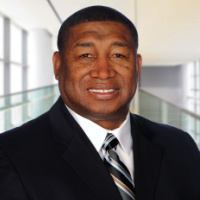
Billy Taylor is an American business executive, dynamic speaker and leadership guru. He is the CEO and President of LinkedXL (Excellence), a Business Operating Systems Architecting Firm. Taylor spent 30 years with The Goodyear Tire & Rubber Co. (GT), serving as Director of North America Manufacturing and Chief Diversity and Inclusion Officer. During his tenure at Goodyear, the company’s earnings rose from -38M to +1B. As the Global Head of Diversity & Inclusion for Goodyear, Taylor led diversity and inclusion strategies for 64,000 employees across the 22 countries where Goodyear operates. Connect with Billy on LinkedIn.
